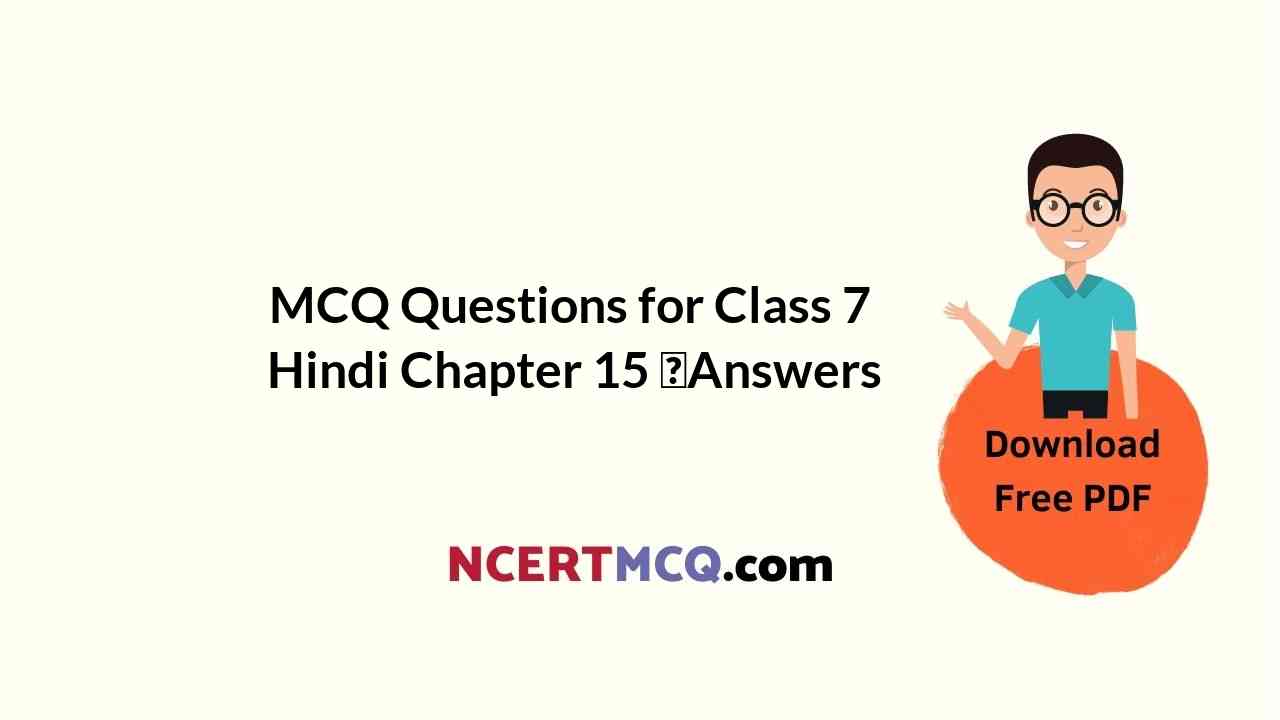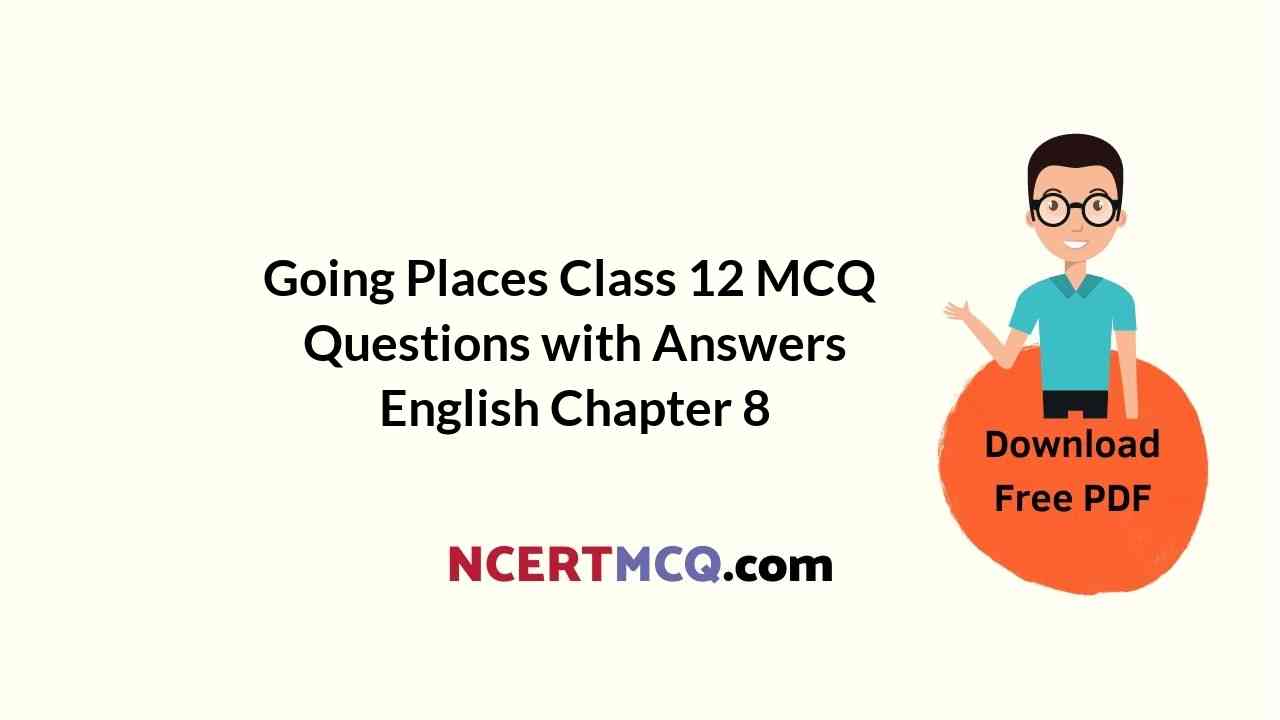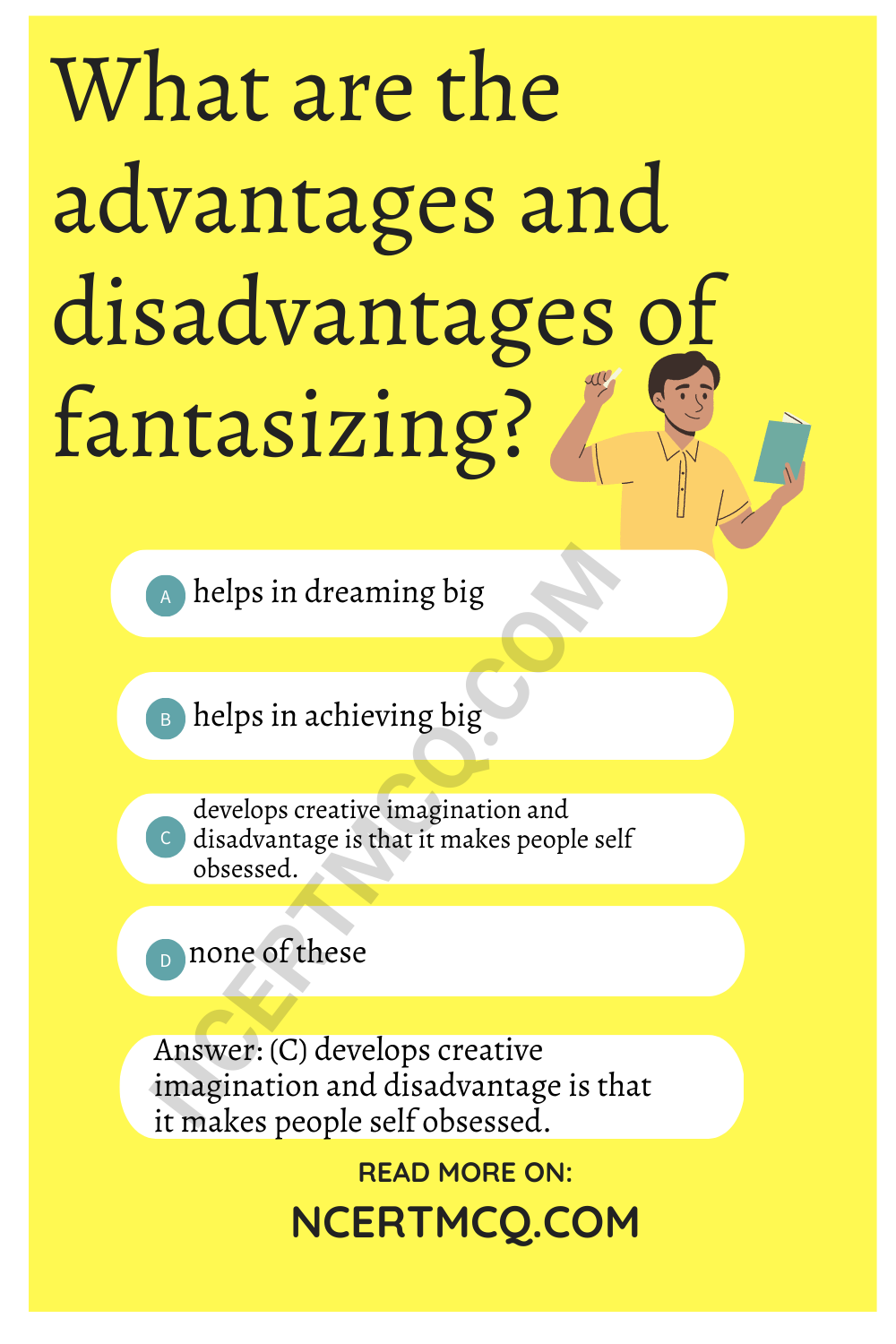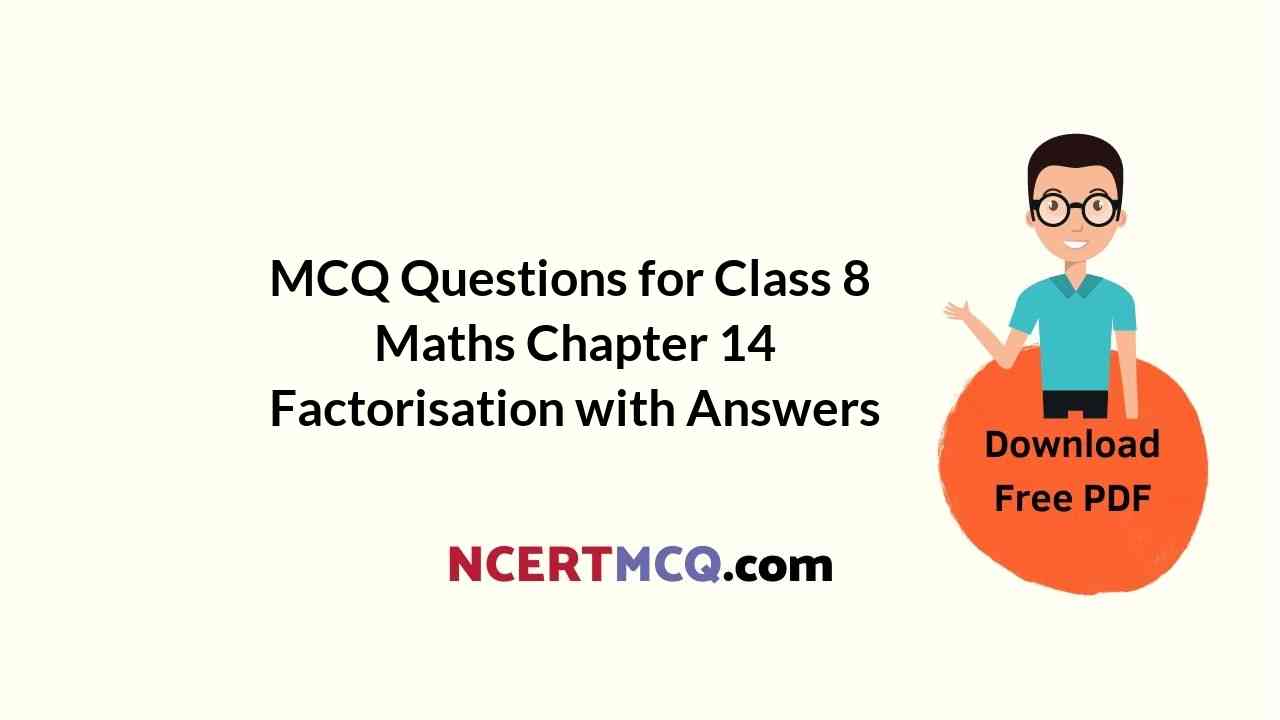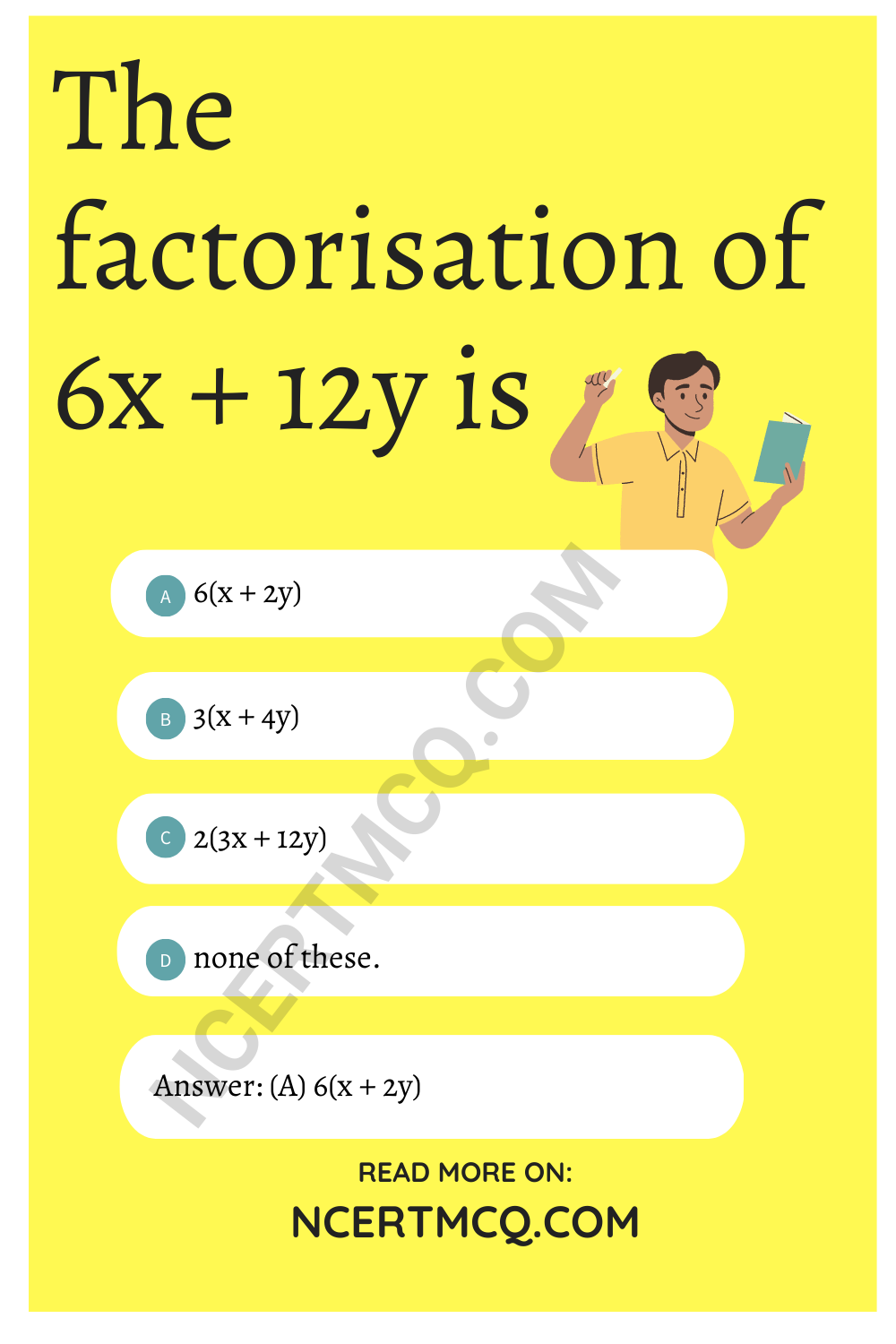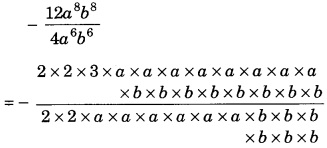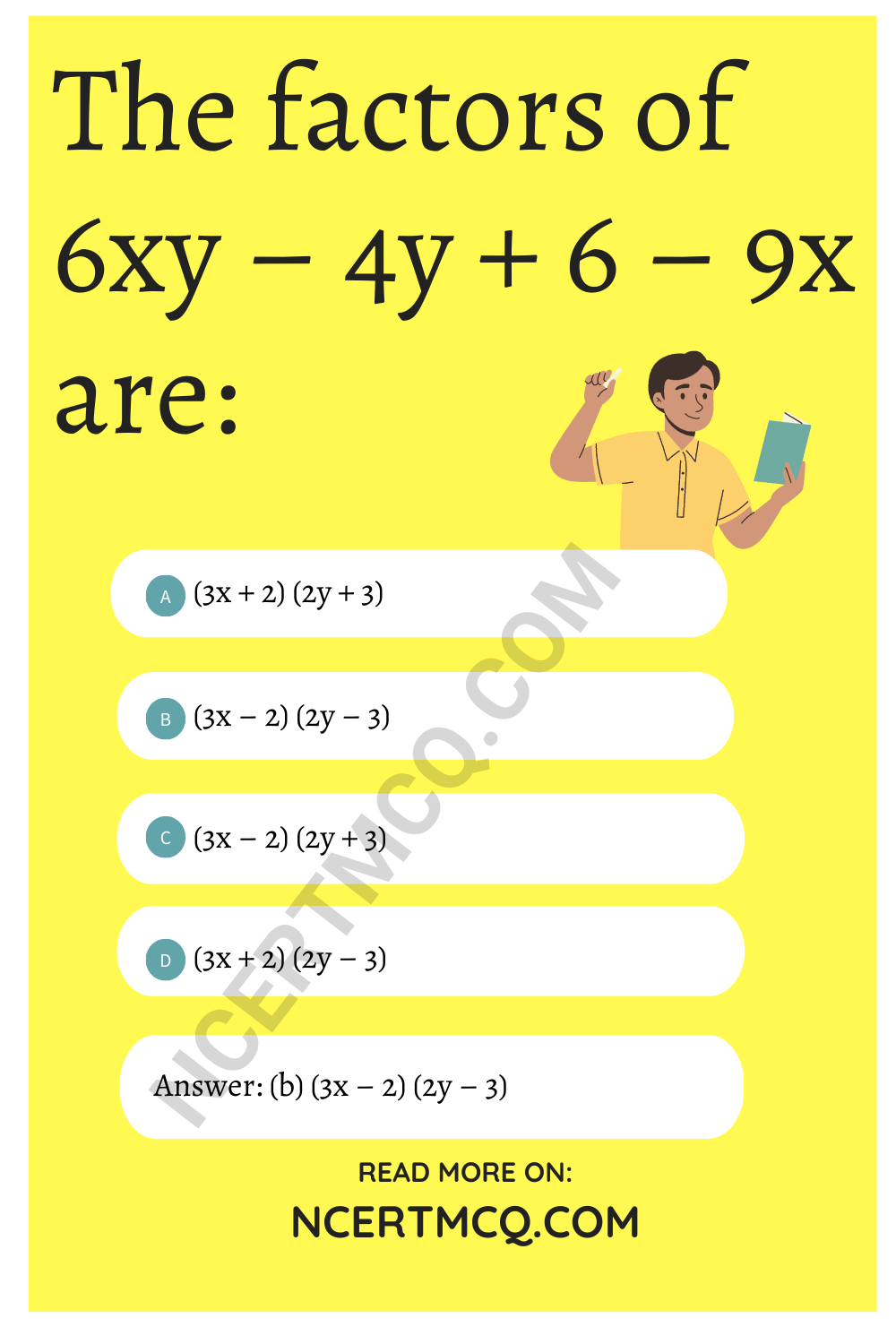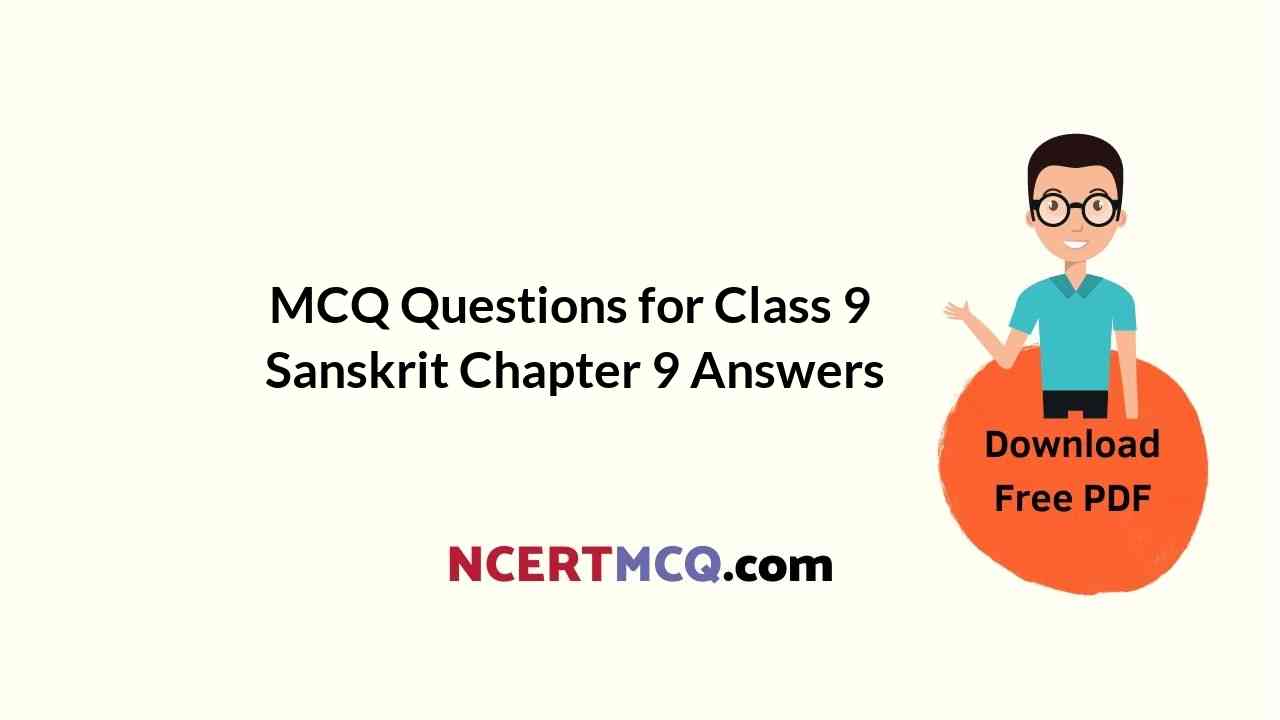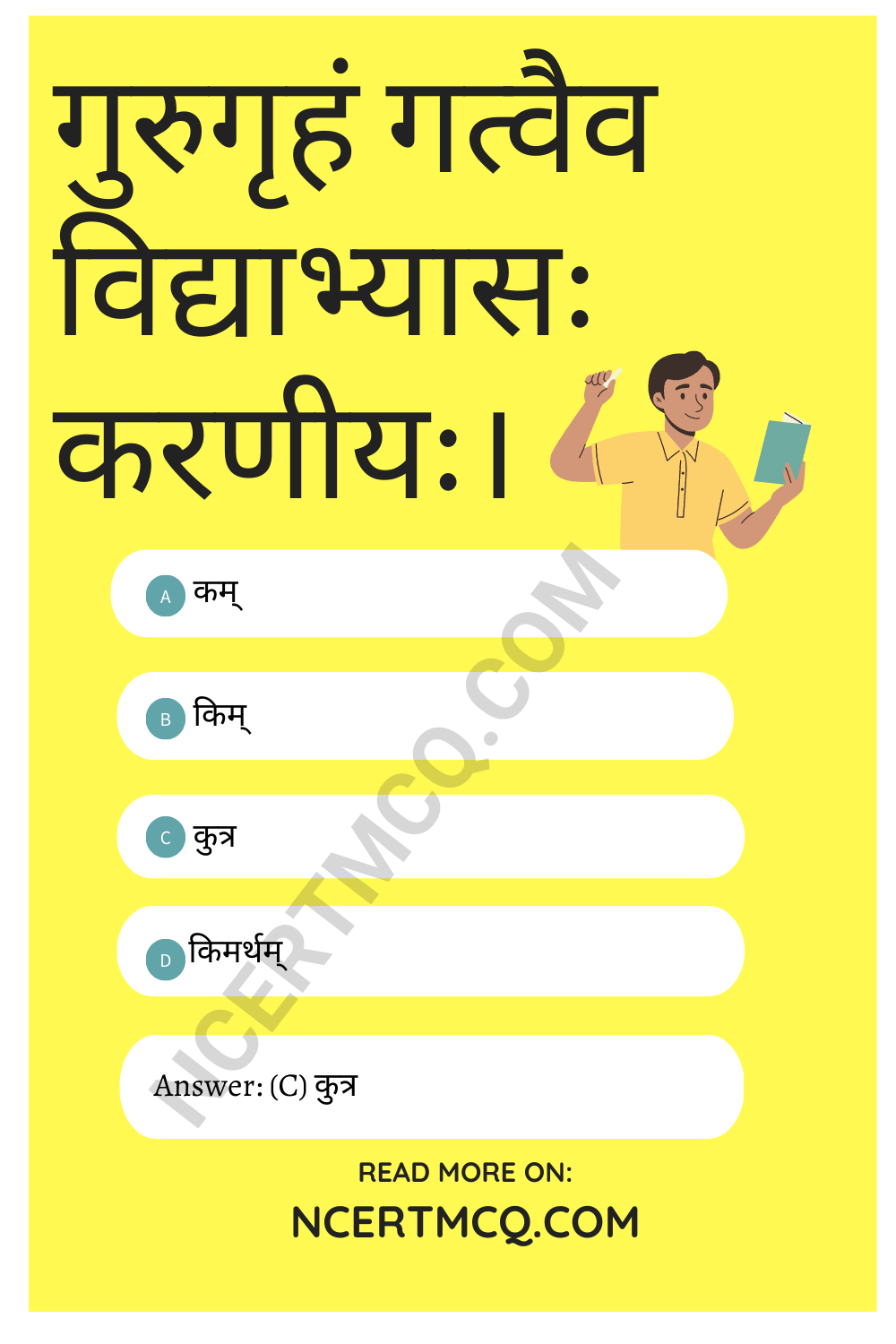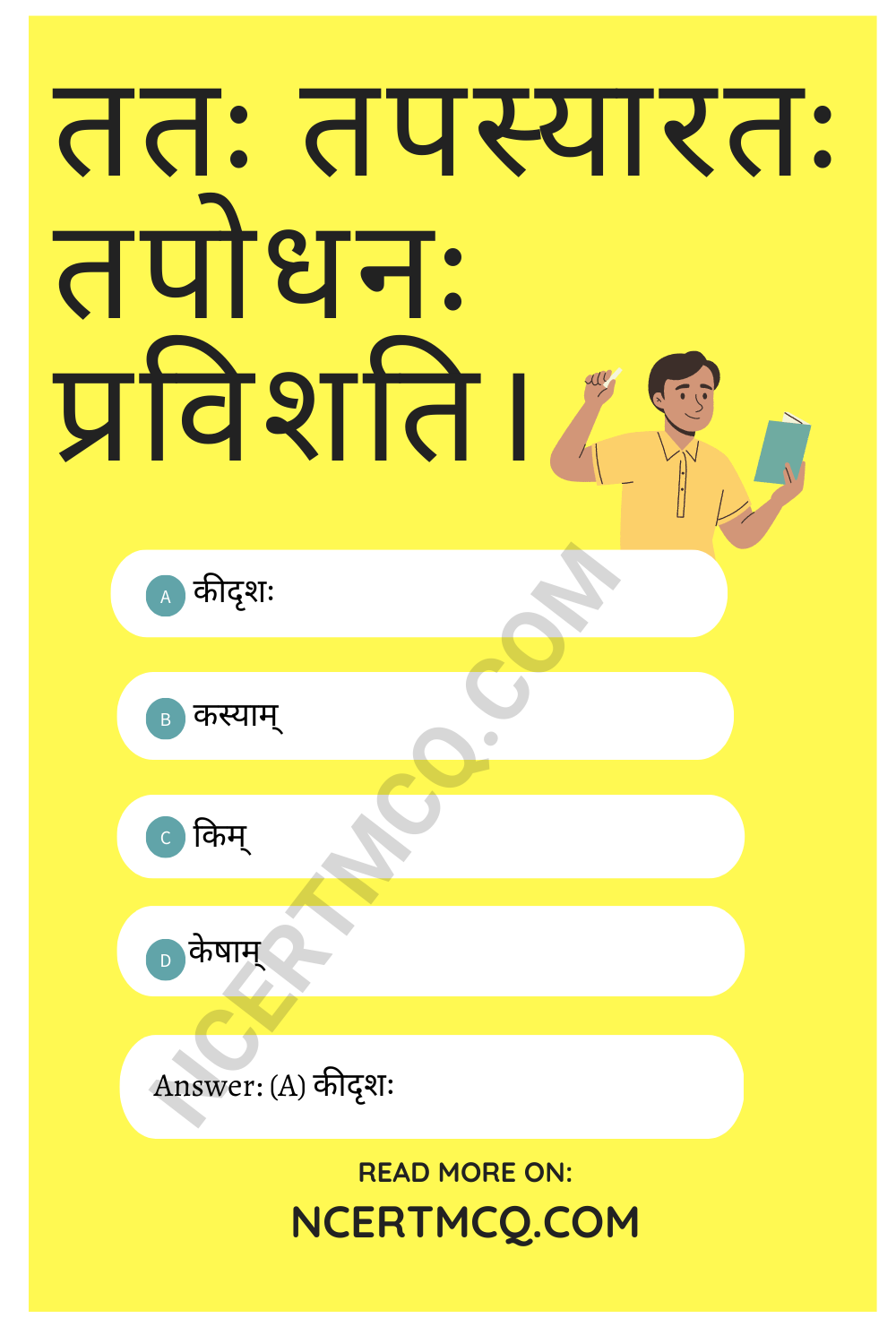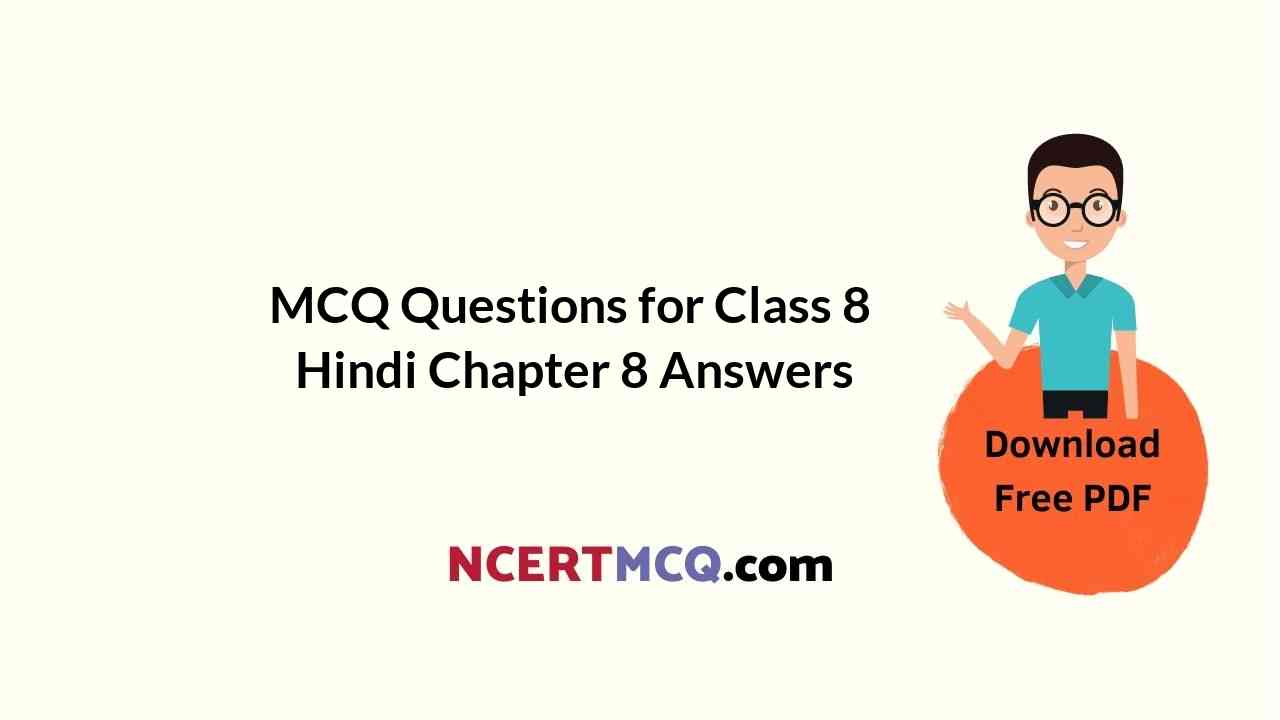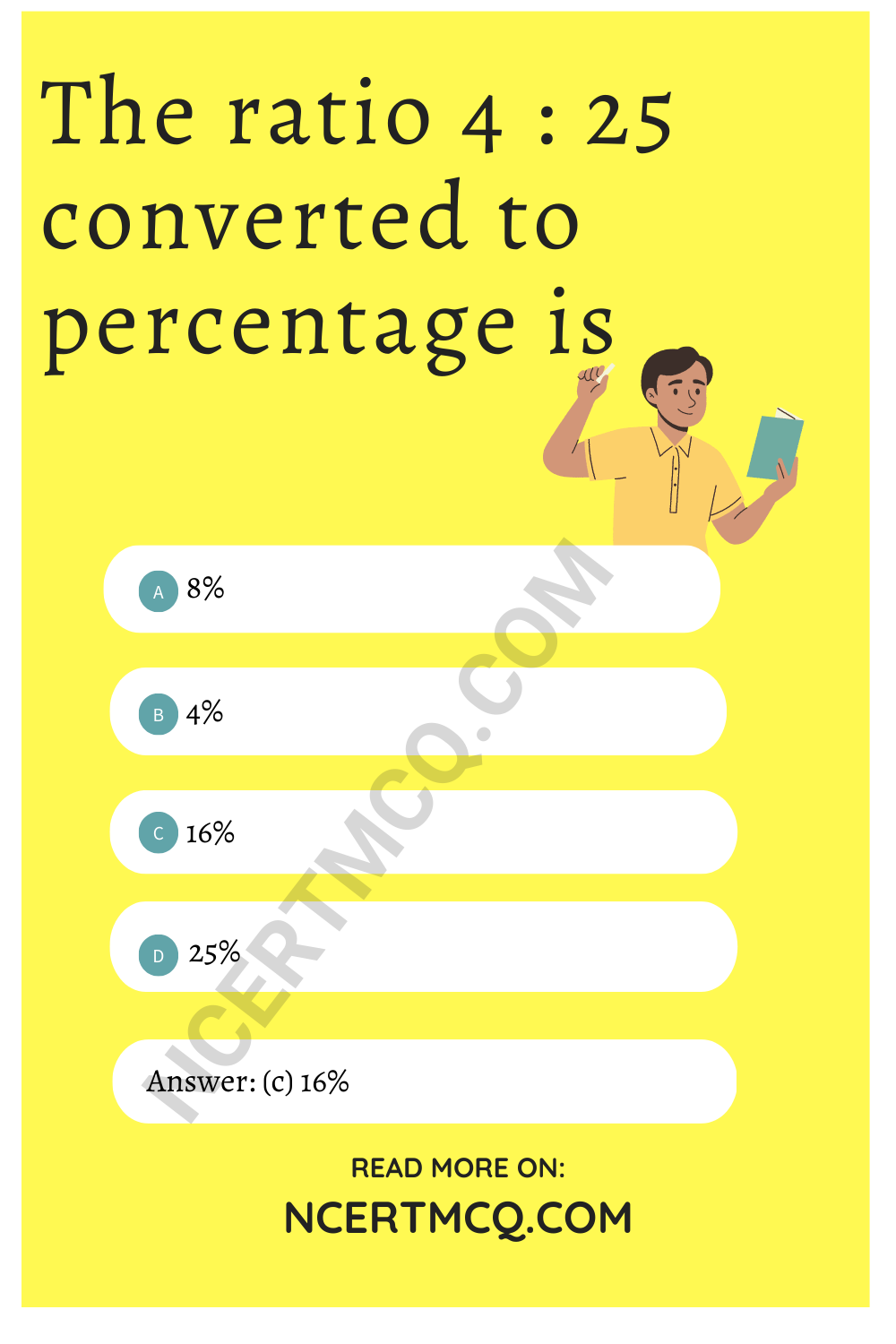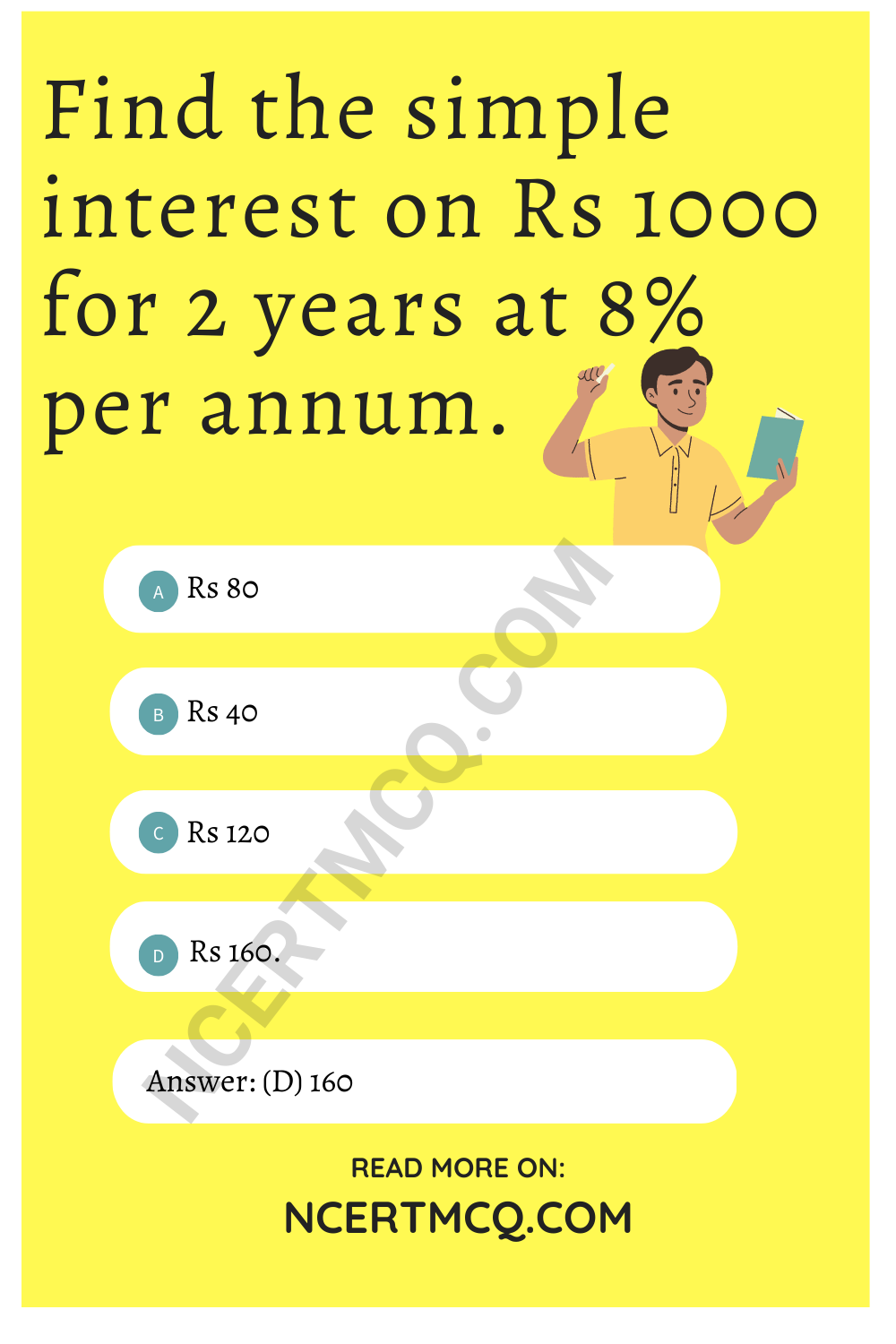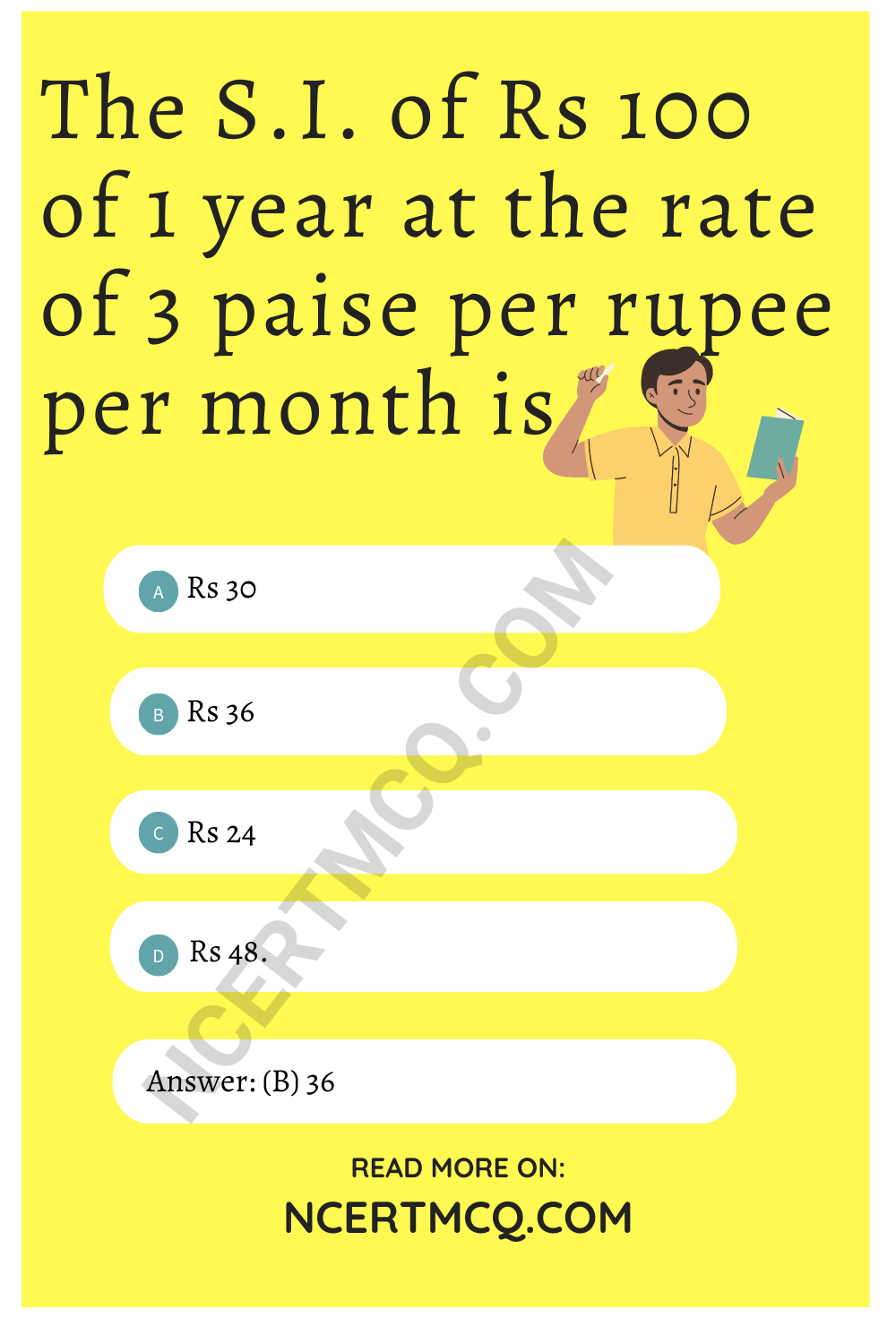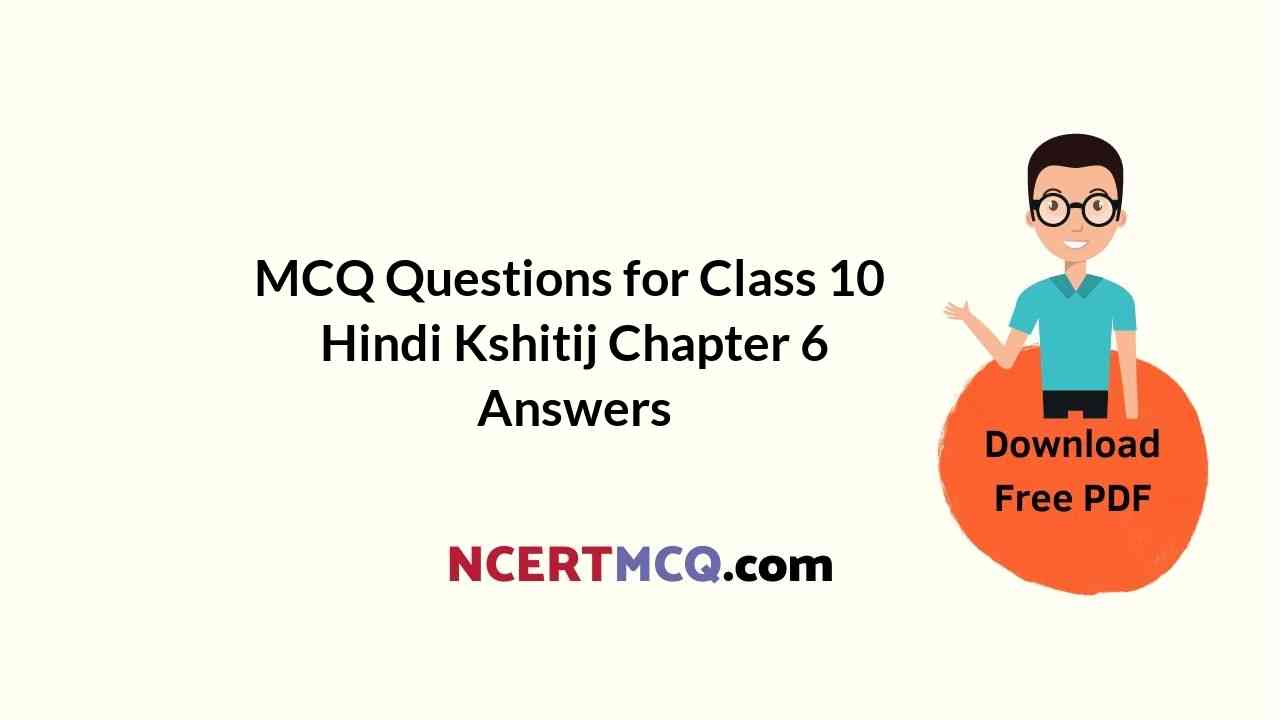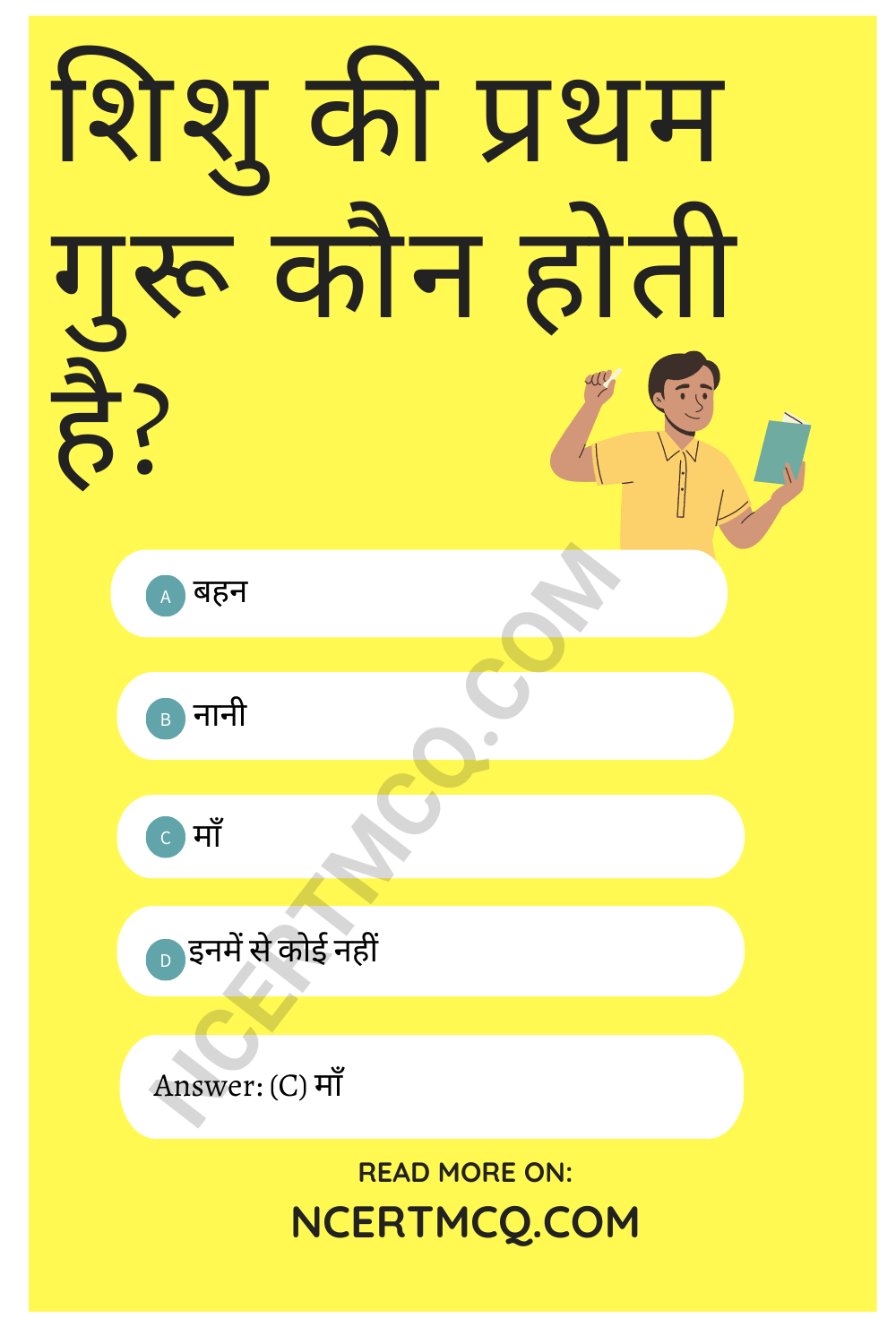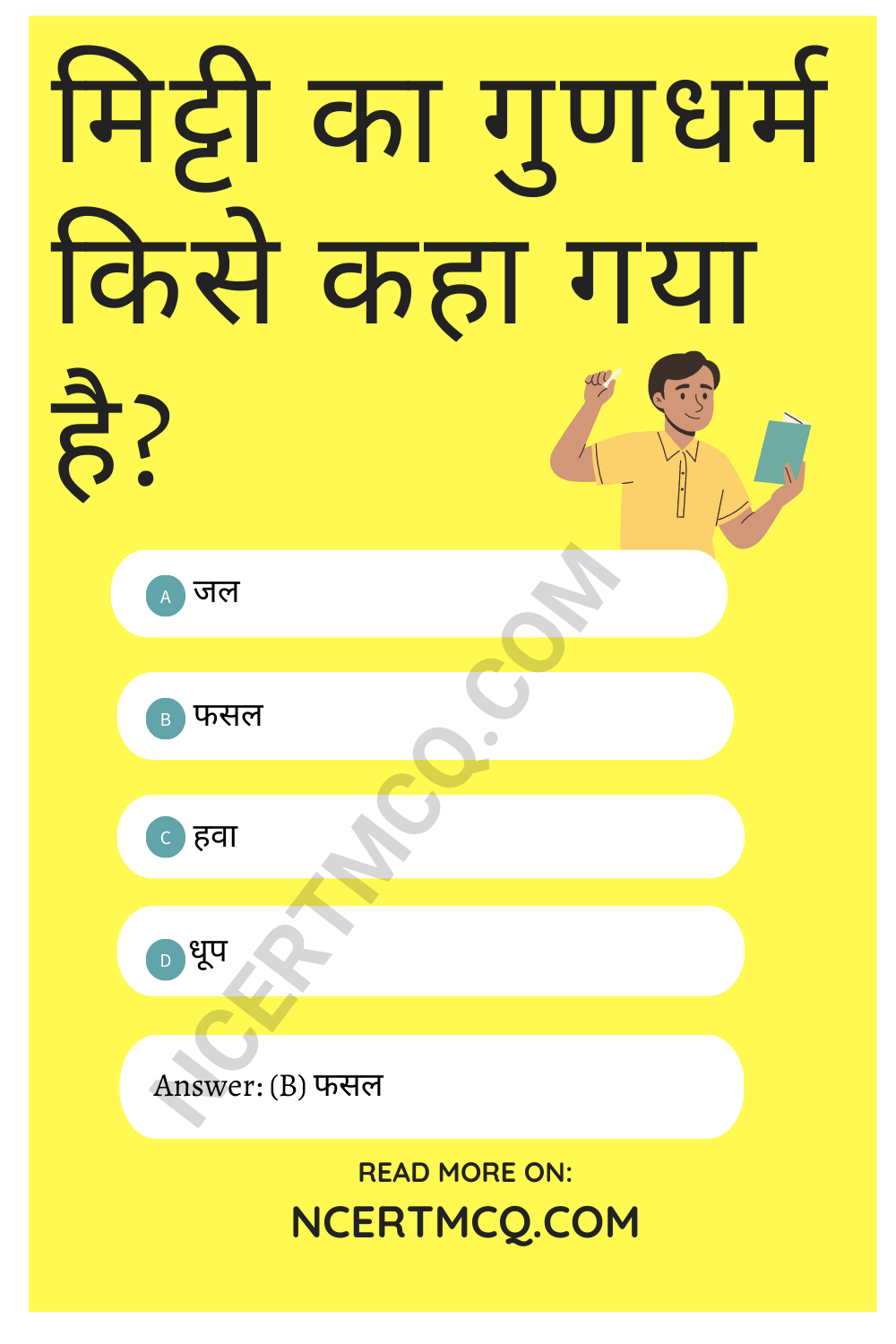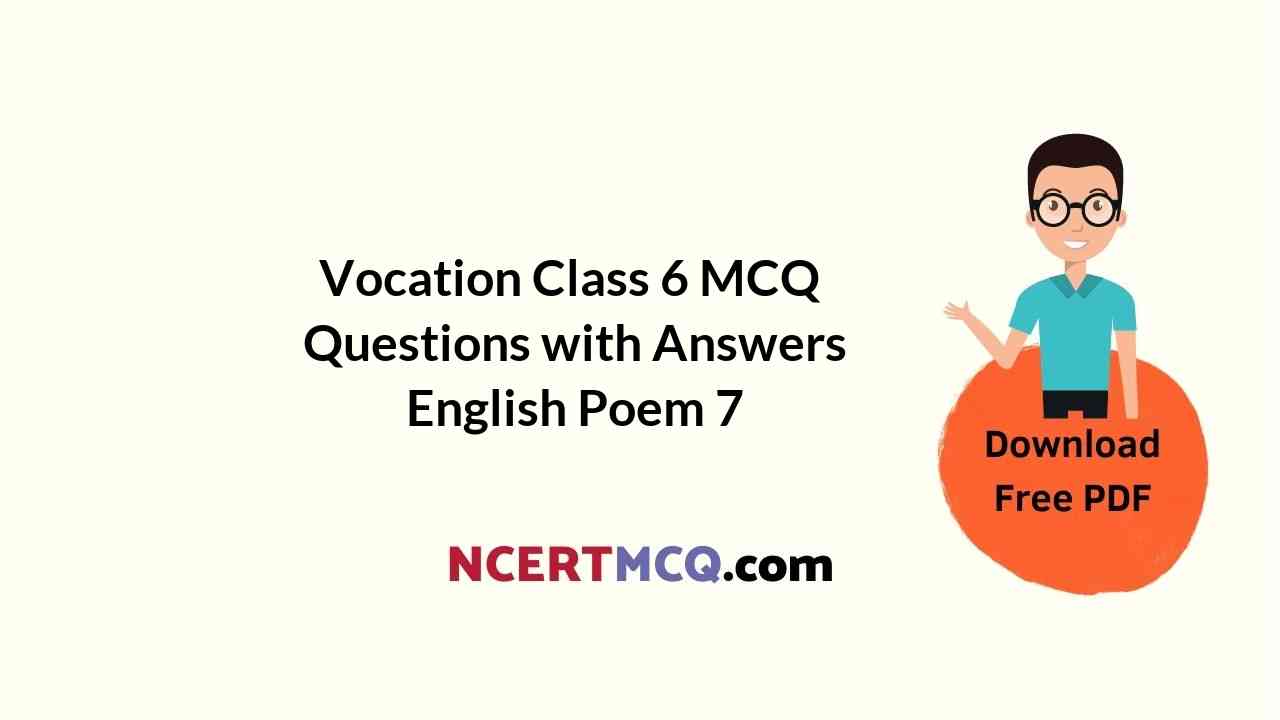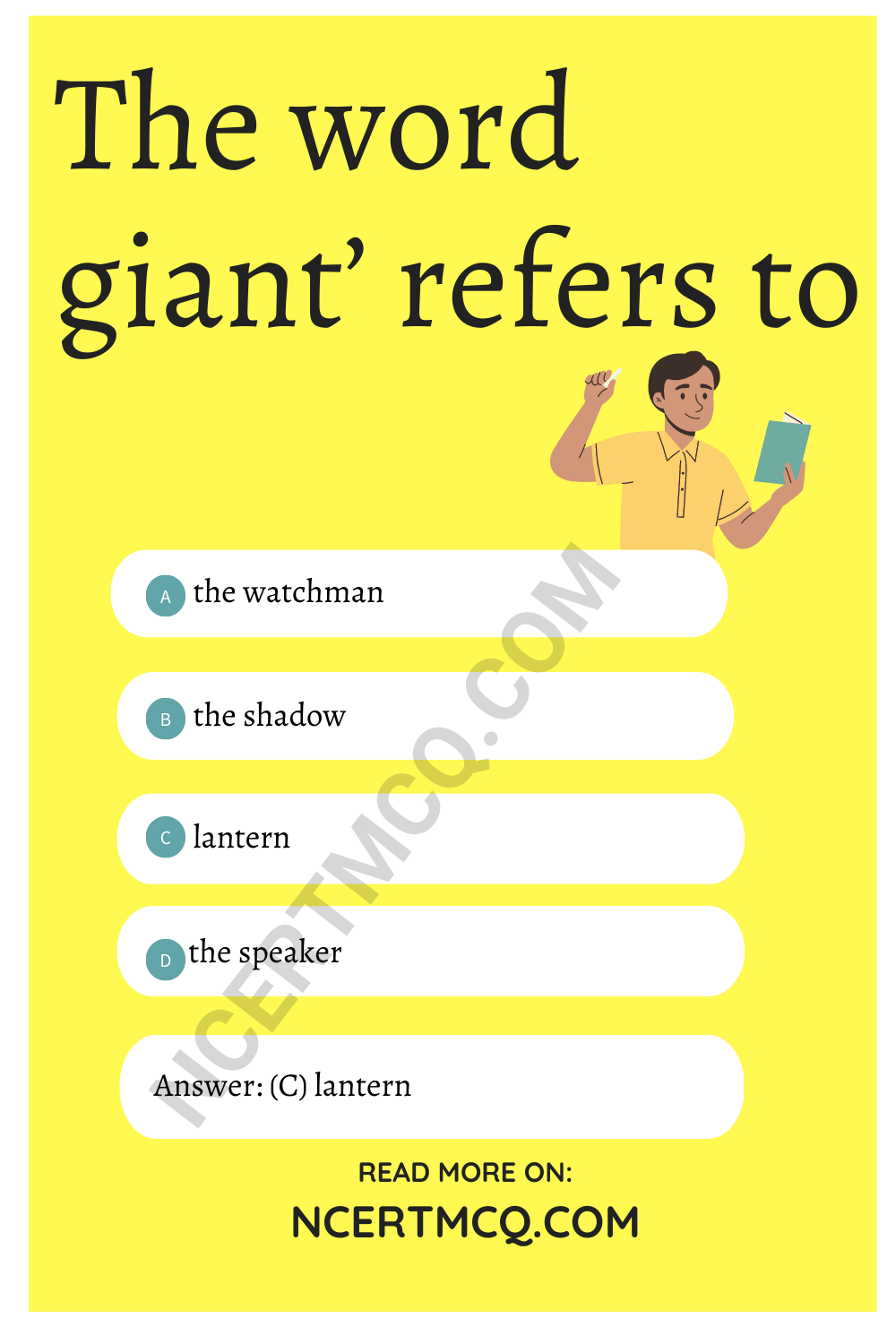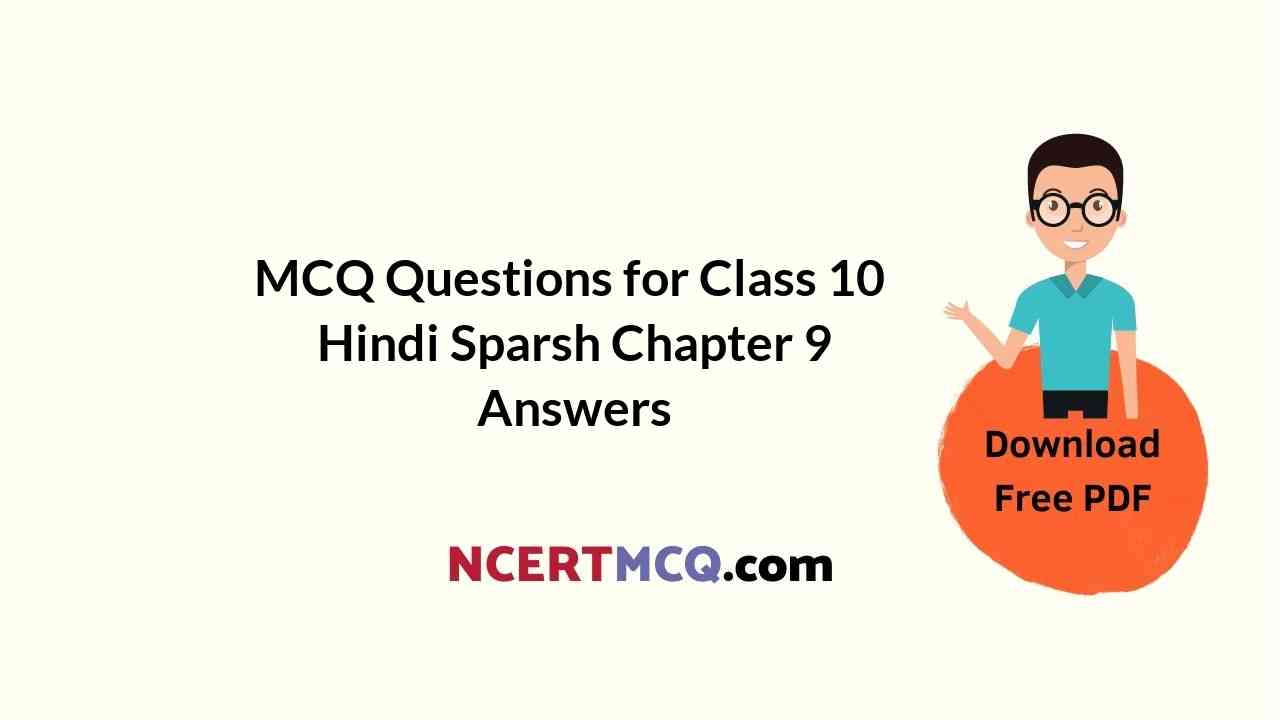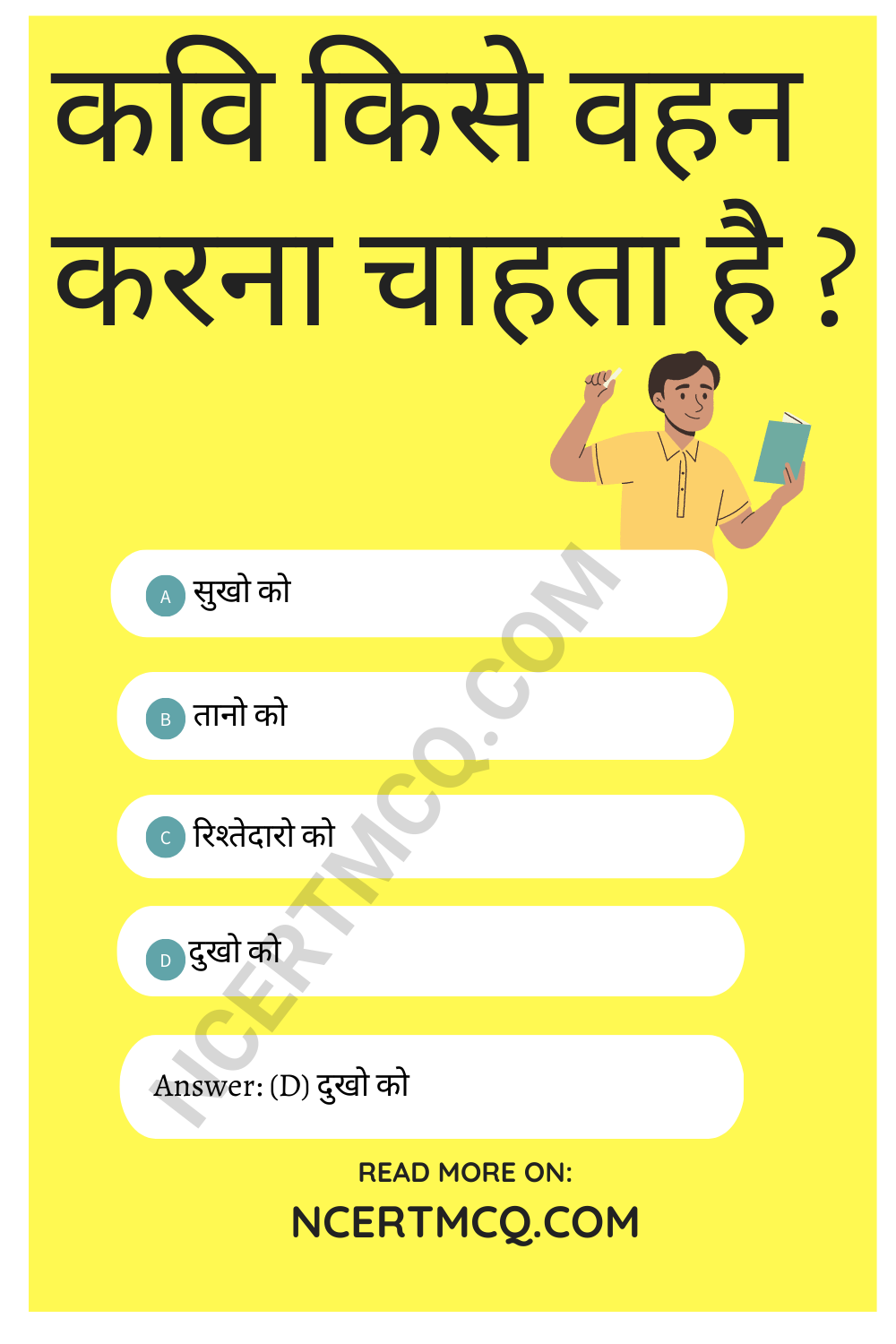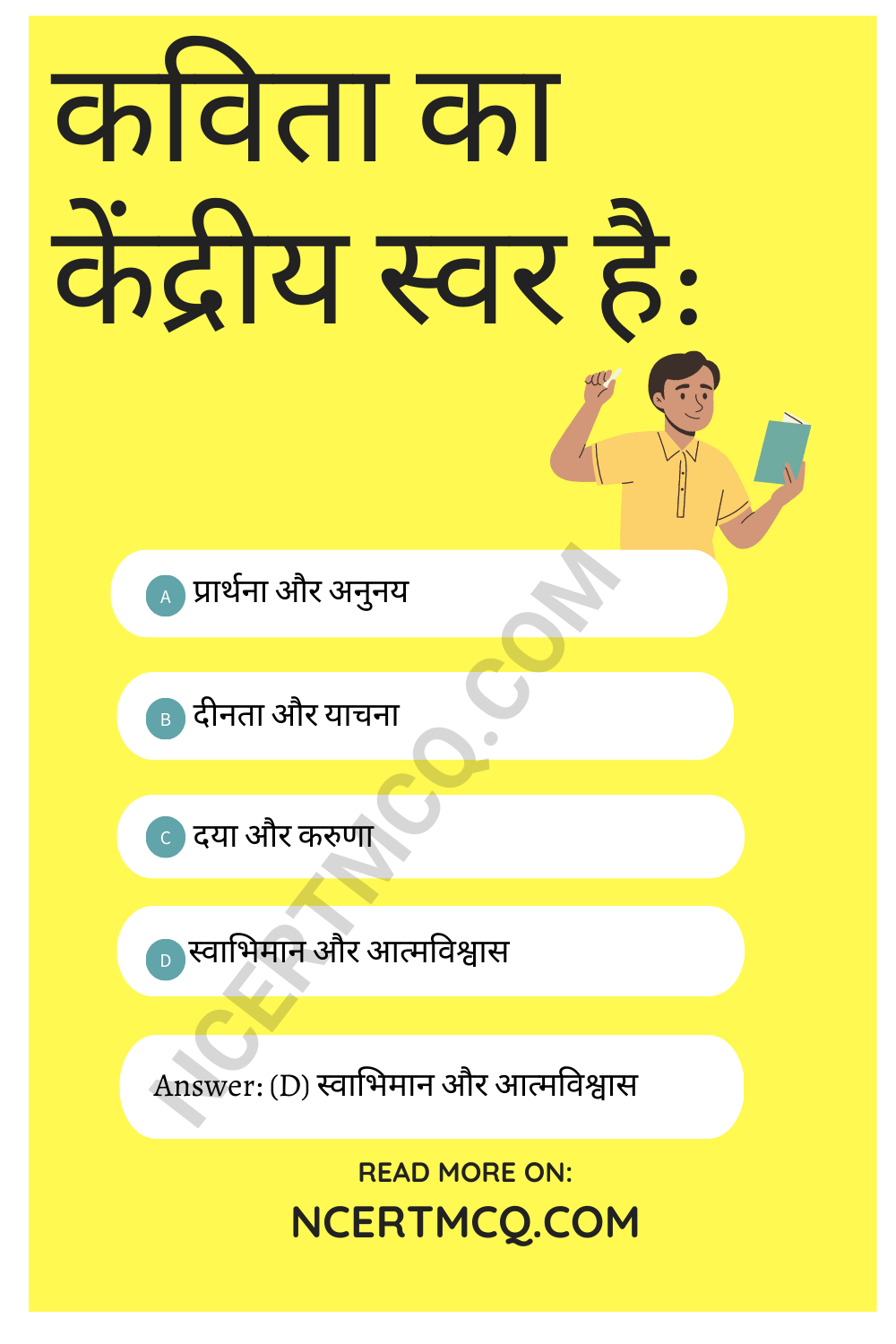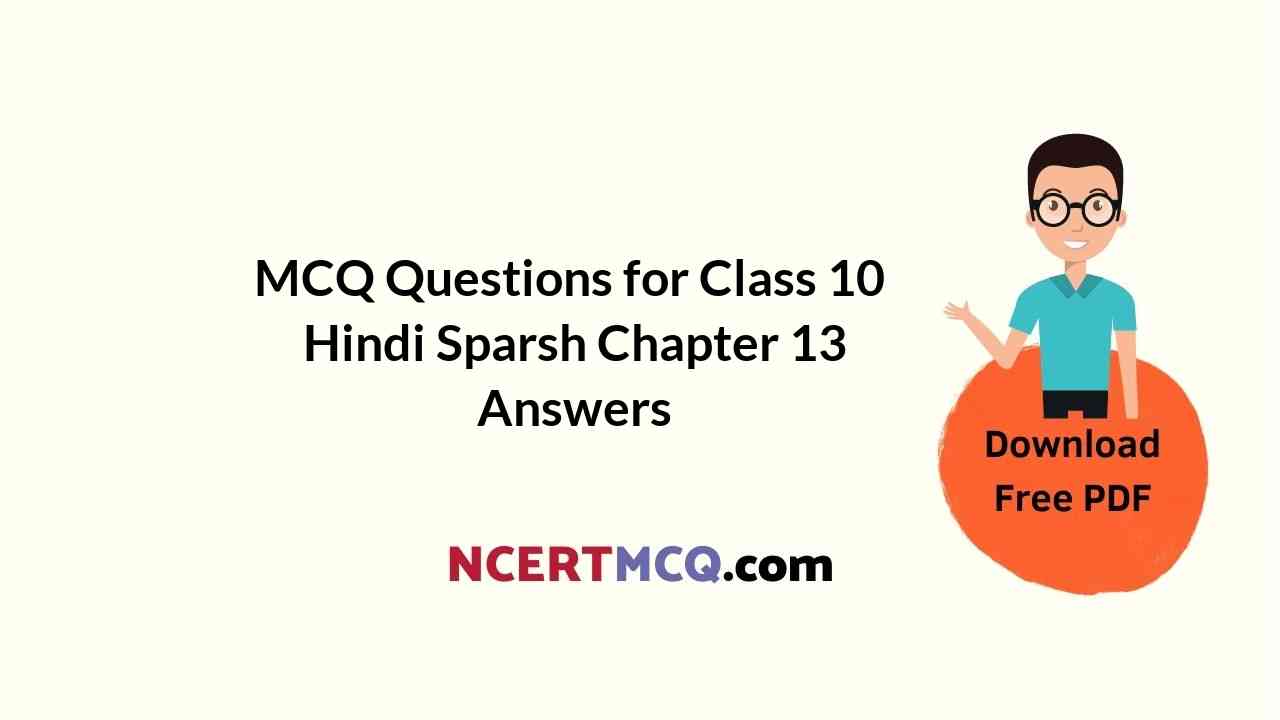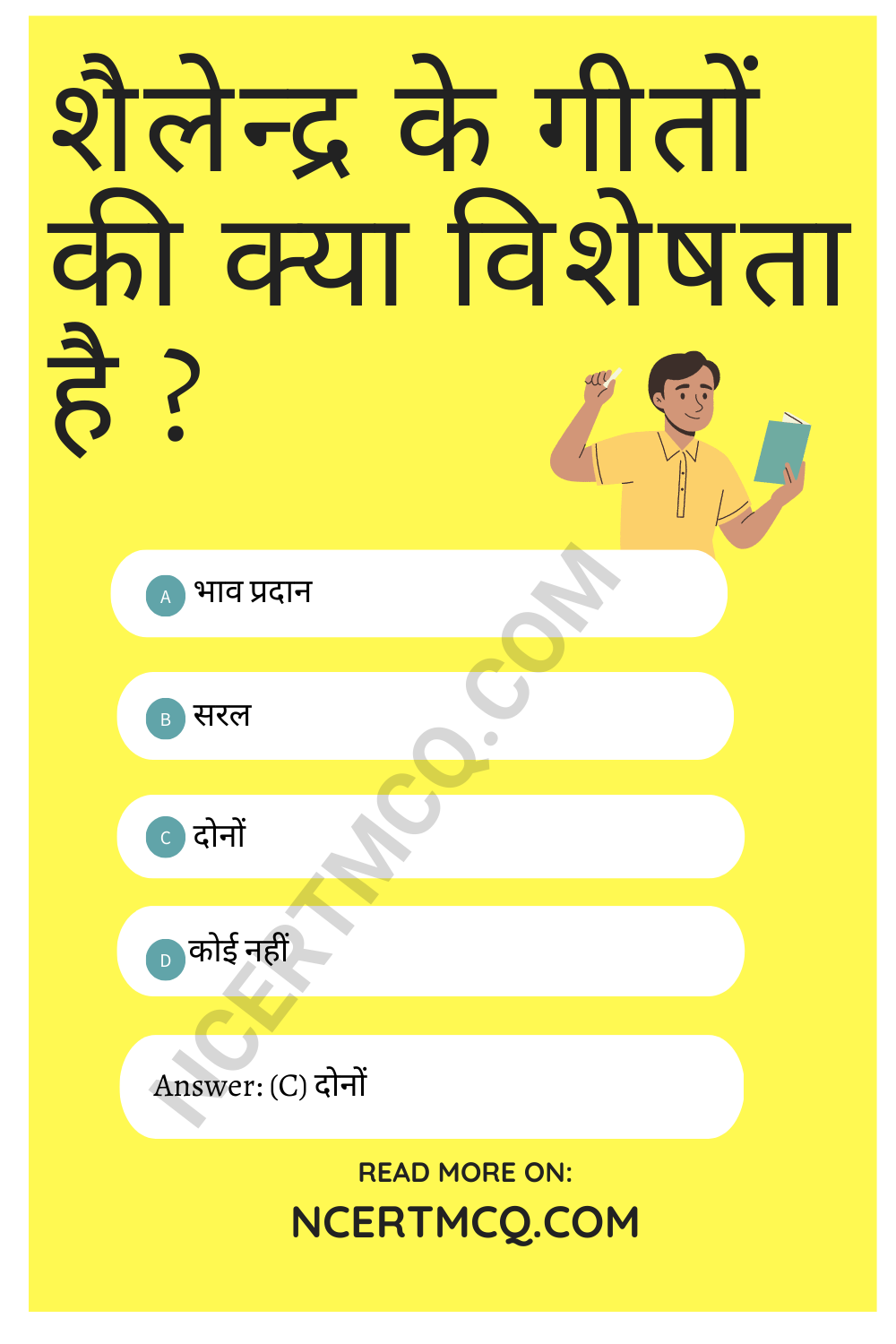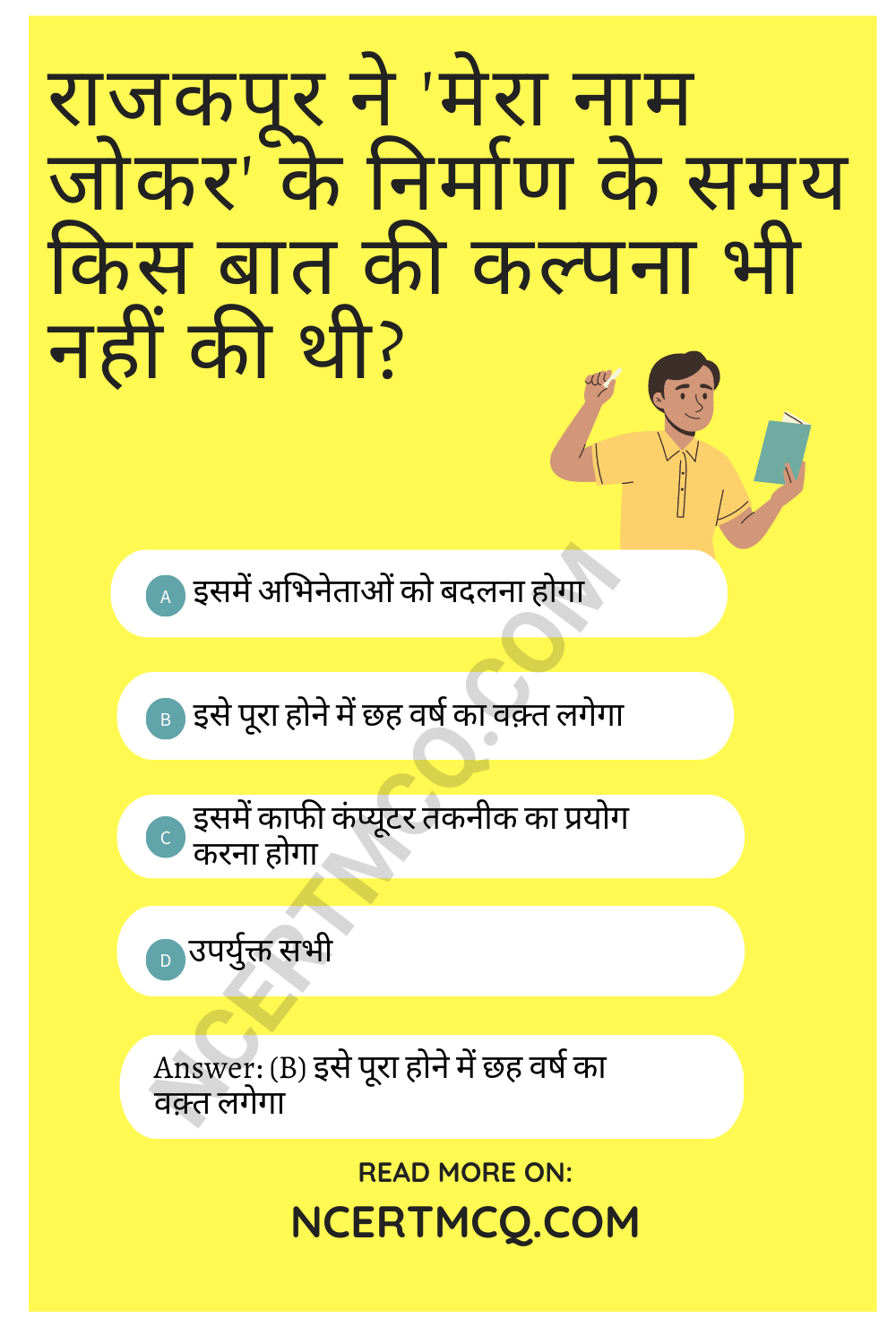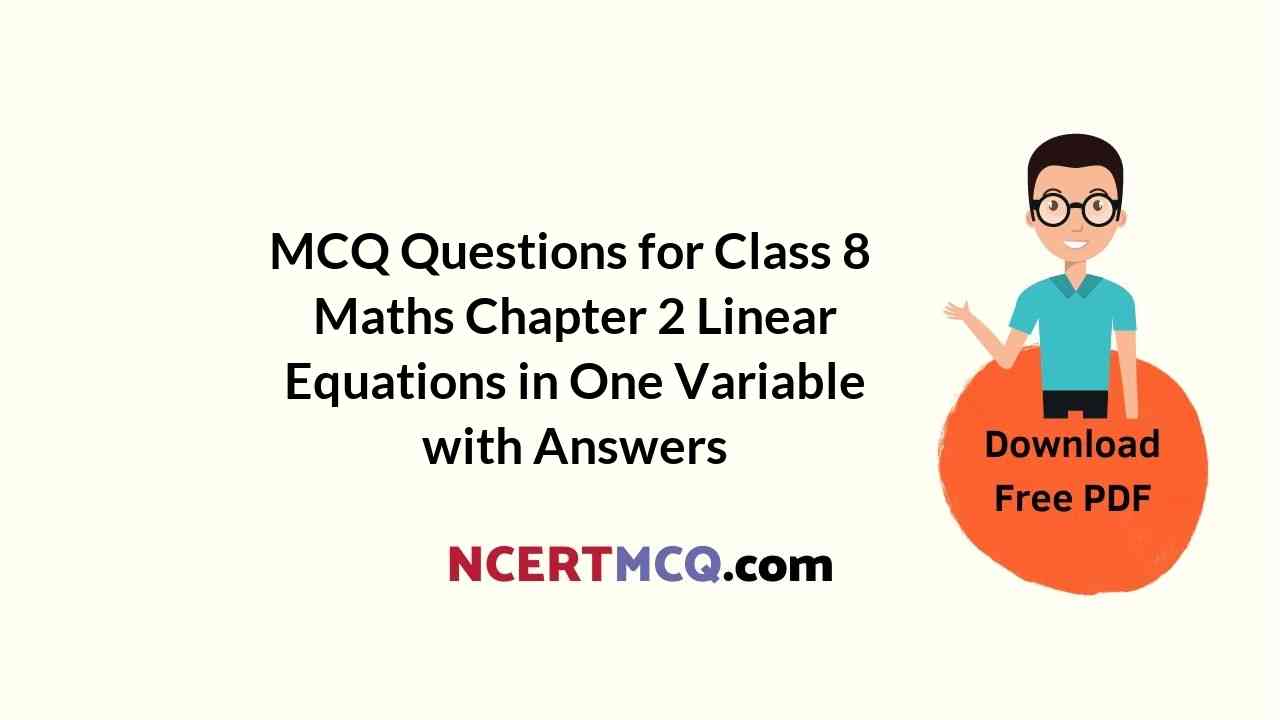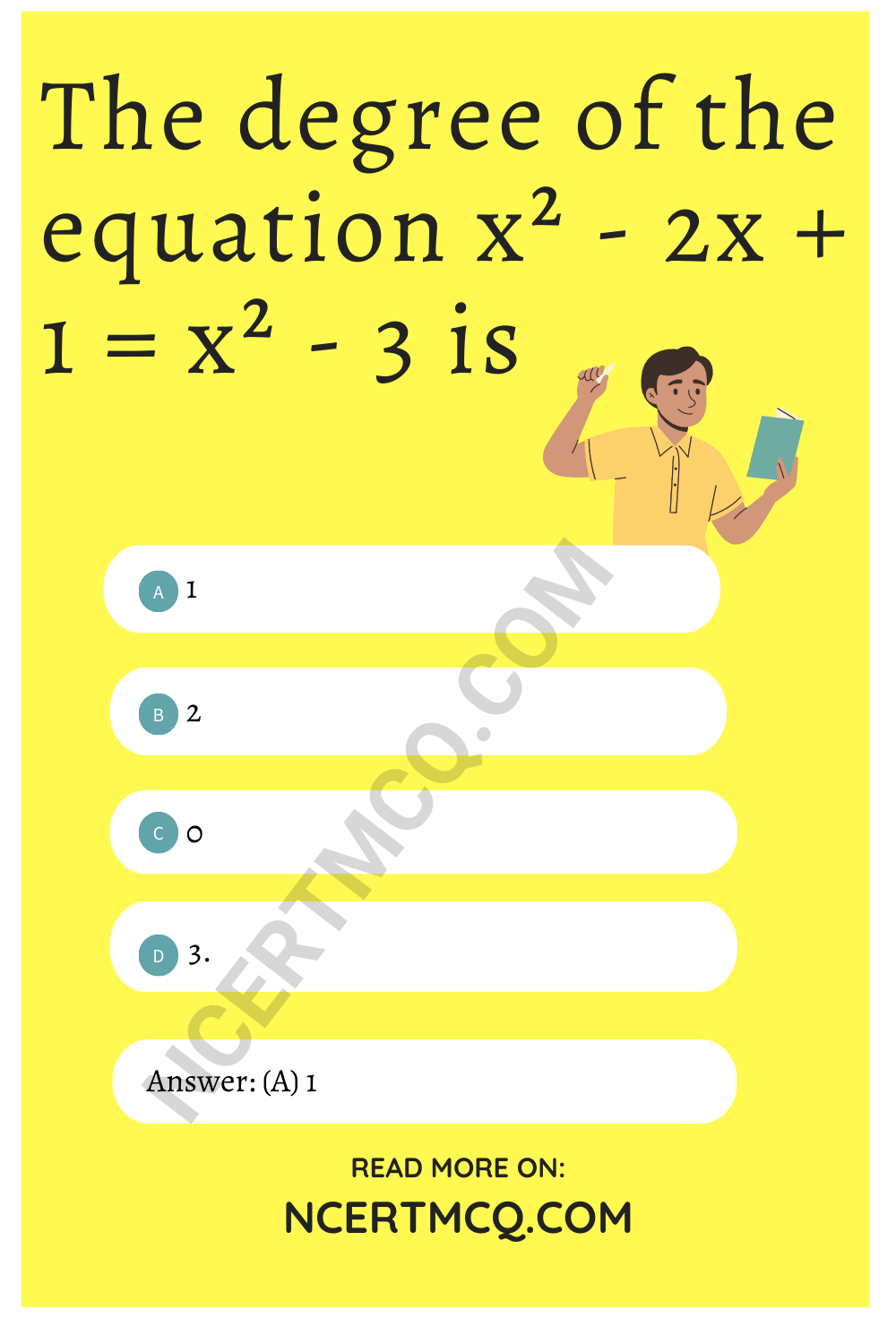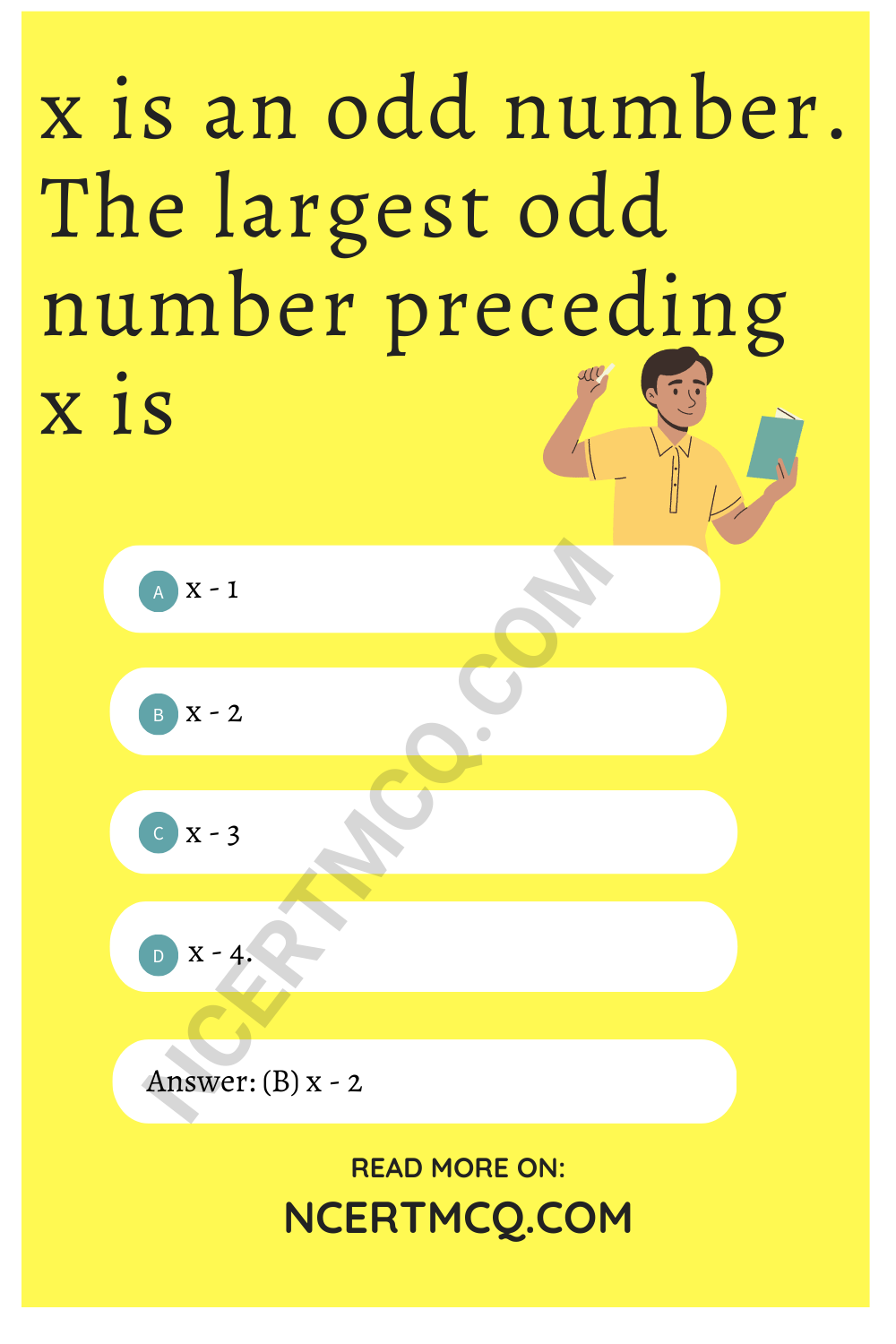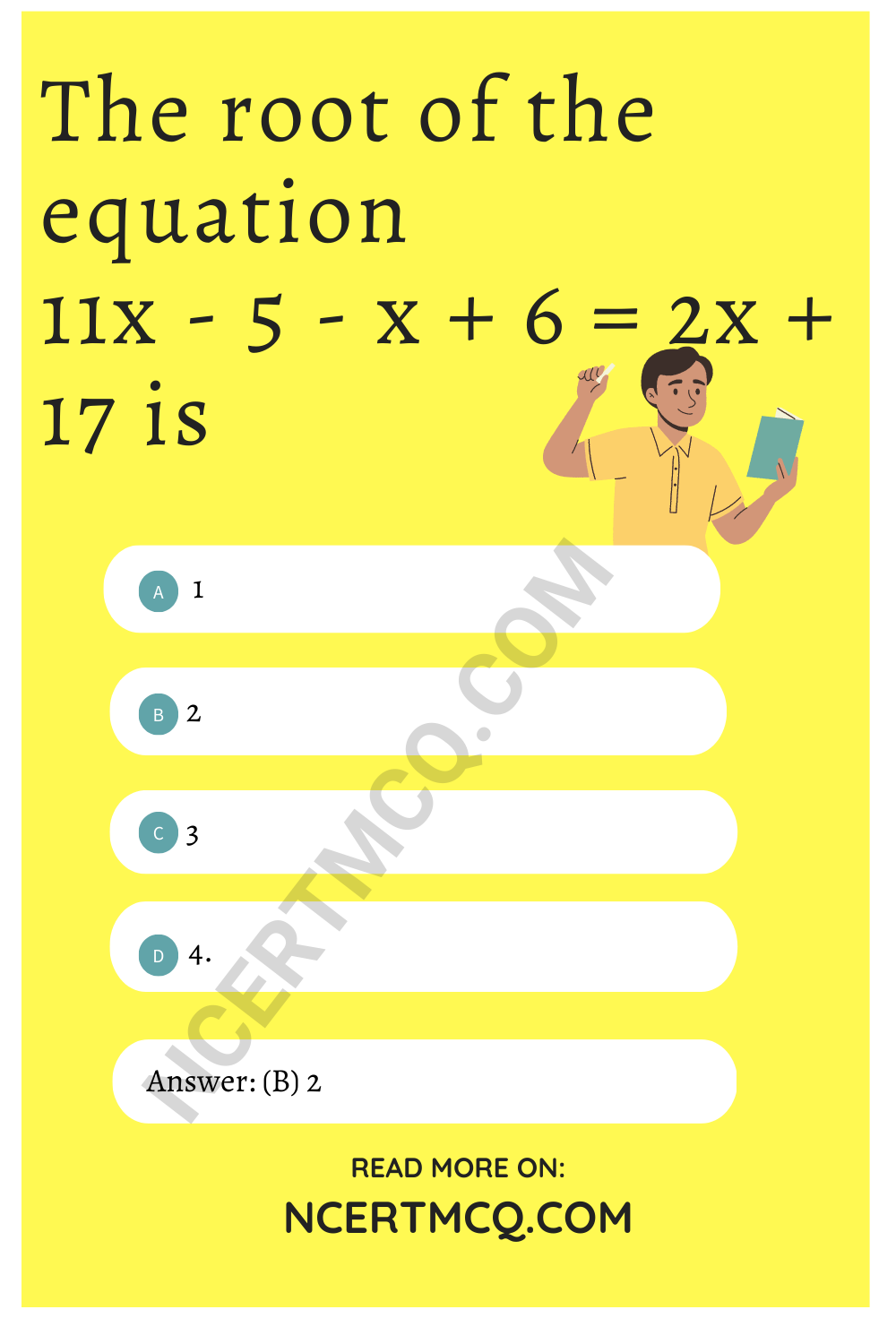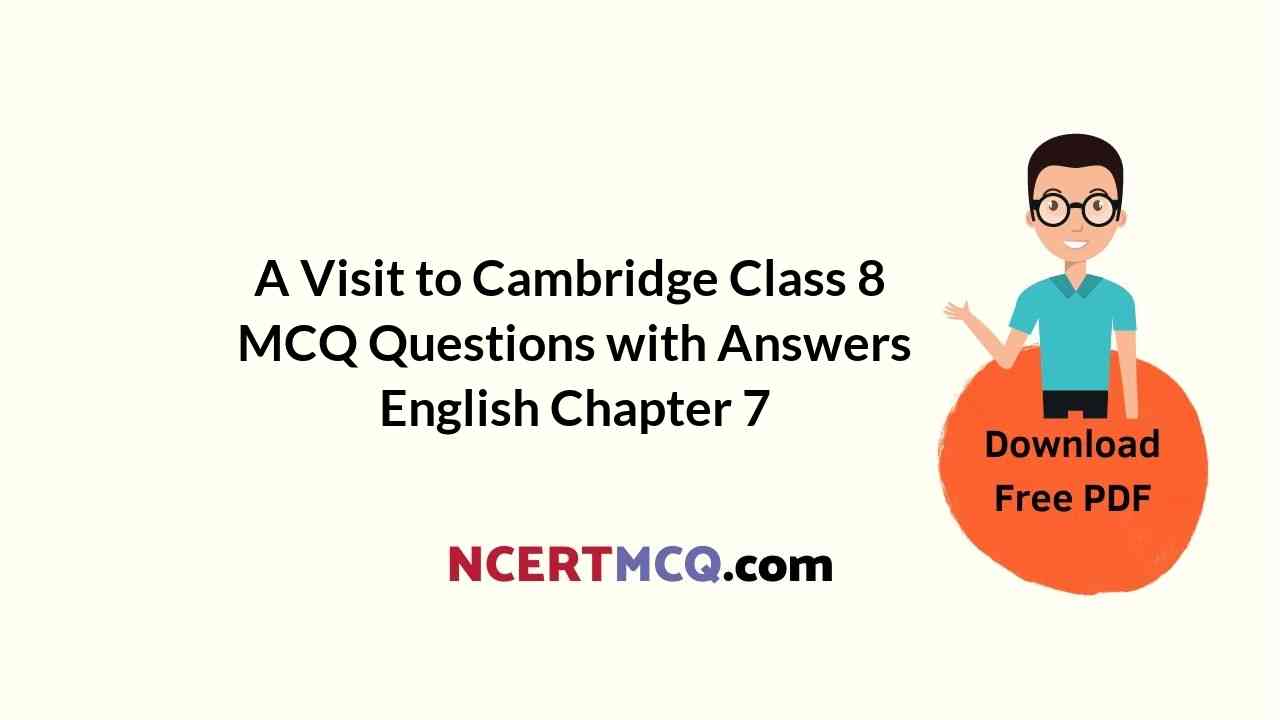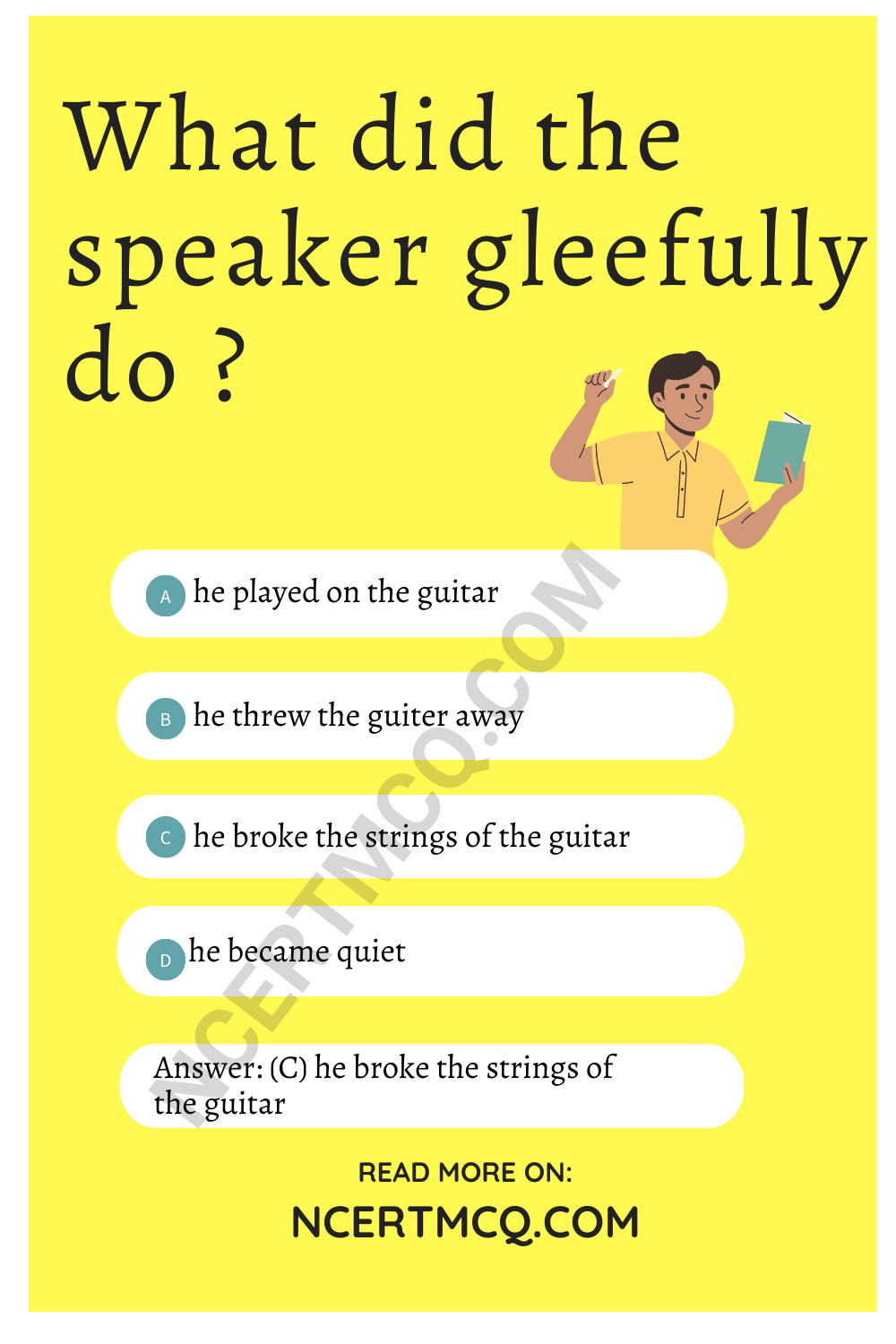Check the below NCERT MCQ Questions for Class 7 Hindi Vasant Chapter 15 नीलकंठ with Answers Pdf free download. MCQ Questions for Class 7 Hindi with Answers were prepared based on the latest exam pattern. We have provided नीलकंठ Class 7 Hindi MCQs Questions with Answers to help students understand the concept very well. https://ncertmcq.com/mcq-questions-for-class-7-hindi-with-answers/
Students can also read NCERT Solutions for Class 7 Hindi Chapter 15 Questions and Answers at LearnInsta. Here all questions are solved with a detailed explanation, It will help to score more marks in your examinations.
नीलकंठ Class 7 MCQs Questions with Answers
Class 7 Hindi Chapter 15 MCQ Question 1.
‘नीलकंठ’ पाठ के लेखक कौन हैं?
(a) सर्वेश्वरदयाल सक्सेना
(b) जैनेंद्र कुमार
(c) टी० पद्मनाभन
(d) महादेवी वर्मा
Answer
Answer: (d) महादेवी वर्मा
Neelkanth Class 7 MCQ Question 2.
बड़े मियाँ के भाषण की तुलना किससे की गई है?
(a) ड्राइवर से
(b) चिड़ीमार से
(c) सामान्य ट्रेन से
(d) तूफ़ान मेल से
Answer
Answer: (d) तूफ़ान मेल से
Ncert Class 7 Hindi Chapter 15 MCQ Question 3.
दोनों शावकों ने आरंभ में कहाँ रहना शुरू किया?
(a) मेज़ के नीचे
(b) रद्दी की टोकरी में
(c) अलमारी के पीछे
(d) पिंजरे में।
Answer
Answer: (b) रद्दी की टोकरी में
MCQ Questions For Class 7 Hindi Chapter 15 Question 4.
शुरुआत में शावकों ने दिन कैसे व्यतीत किया?
(a) मेज़ पर चढ़कर
(b) कुरसी पर चढ़कर
(c) कहीं छिपकर
(d) लेखिका के पास रहकर।
Answer
Answer: (c) कहीं छिपकर
Nilkanth Class 7 MCQ Question 5.
मोर के दोनों बच्चों को चिड़ीमार कहाँ से पकड़कर लाया था?
(a) रामगढ़ से
(b) रायगढ़ से
(c) पिथौरागढ़ से
(d) शंकरगढ़ से।
Answer
Answer: (d) शंकरगढ़ से।
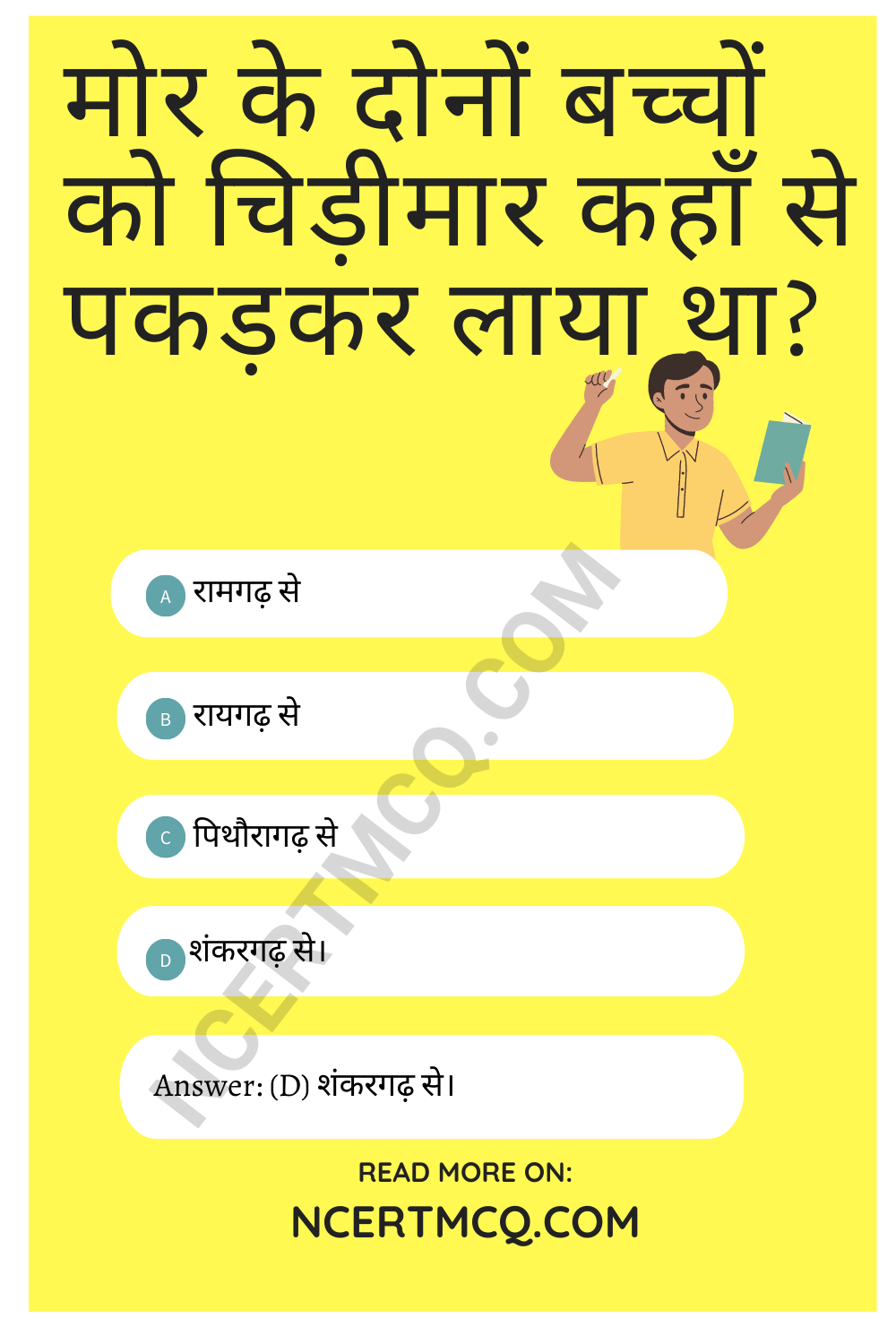
Class 7 Hindi Ch 15 MCQ Question 6.
लेखिका ने मोर के बच्चों को कितने रुपए में खरीदा?
(a) पच्चीस रुपए में
(b) तीस रुपए में
(c) पैंतीस रुपए में
(d) चालीस रुपए में
Answer
Answer: (c) पैंतीस रुपए में
Neelkanth Class 7 Extra Questions Question 7.
लेखिका को क्या ज्ञात नहीं हो पाया?
(a) शावकों की प्रजाति का
(b) नीलकंठ के बढ़ने का रहस्य
(c) नीलकंठ कब बाकी जानवरों का संरक्षक
(d) अन्य जानवर उसके संरक्षक बन गए।
Answer
Answer: (c) नीलकंठ कब बाकी जानवरों का संरक्षक
Class 7 Hindi Neelkanth MCQ Question 8.
अन्य जानवर जब व्यस्त होते थे तो नीलकंठ क्या करता था?
(a) नाचता था
(b) दाना चुगता था
(c) आराम करता रहता था
(d) उन सभी का ध्यान रखता था।
Answer
Answer: (d) उन सभी का ध्यान रखता था।
(1)
बड़े मियाँ के भाषण की तूफ़ान मेल के लिए कोई निश्चित स्टेशन नहीं है। सुननेवाला थककर जहाँ रोक दे वहीं स्टेशन मान लिया जाता है। इस तथ्य से परिचित होने के कारण ही मैंने बीच में उन्हें रोककर पूछा, “मोर के बच्चे हैं कहाँ?” बड़े मियाँ के हाथ के संकेत का अनुसरण करते हुए मेरी दृष्टि एक तार के छोटे-से पिंजड़े तक पहुँची जिसमें तीतरों के समान दो बच्चे बैठे थे। पिंजड़ा इतना संकीर्ण था कि वे पक्षी-शावक जाली के गोल फ्रेम में किसी जड़े चित्र जैसे लग रहे थे।
Class 7th Hindi Chapter 15 MCQ Question 1.
उपरोक्त गद्यांश किस शैली में लिखी गई है?
(a) संस्मरण
(b) निबंध
(c) रेखाचित्र
(d) कहानी।
Answer
Answer: (a) संस्मरण
Question 2.
उपर्युक्त गद्यांश के लेखक हैं-
(a) शिव प्रसाद सिंह
(b) नागार्जुन
(c) यतीश अग्रवाल
(d) महादेवी वर्मा।
Answer
Answer: (d) महादेवी वर्मा।
Question 3.
बड़े मियाँ कौन थे?
(a) एक शिकारी
(b) पक्षियों के लिए पिंजड़ा बेचनेवाला
(c) पक्षियों के बच्चे को बेचने वाला
(d) पक्षियों के लिए दाना बेचनेवाला।
Answer
Answer: (c) पक्षियों के बच्चे को बेचने वाला
Question 4.
बड़े मियाँ की तुलना किससे की गई है?
(a) स्वतंत्रता सेनानियों से
(b) तूफ़ान मेल से
(c) प्रकृति प्रेमियों से
(d) जल्लादों से।
Answer
Answer: (b) तूफ़ान मेल से
Question 5.
बड़े मियाँ ने लेखिका को मोर के बच्चे को कैसे दिखाया?
(a) हाथ में लाकर
(b) हाथ जोड़कर
(c) पिंजड़े में लाकर
(d) हाथ के इशारे से।
Answer
Answer: (d) हाथ के इशारे से।
Question 6.
पक्षी के बच्चे किसी जड़ चित्र की भाँति क्यों लग रहे थे?
(a) पक्षी के बच्चे छोटे होने के कारण
(b) पिंजड़ा अत्यधिक छोटे होने के कारण
(c) पिंजड़ा अत्यधिक बड़े होने के कारण
(d) पक्षी के बच्चे के पंख धब्बेदार होने के कारण।
Answer
Answer: (b) पिंजड़ा अत्यधिक छोटे होने के कारण
(2)
दोनों नवागंतुकों ने पहले से रहनेवालों में वैसा ही कुतूहल जगाया जैसा नववधू के आगमन पर परिवार में स्वाभाविक है। लक्का कबूतर नाचना छोड़कर दौड़ पड़े और उनके चारों ओर घूम-घूमकर गुटरगूं-गुटरगूं की रागिनी अलापने लगे। बड़े खरगोश सभ्य सभासदों के समान क्रम से बैठकर गंभीर भाव से उनका निरीक्षण करने लगे। ऊन की गेंद जैसे छोटे खरगोश उनके चारों ओर उछलकूद मचाने लगे। तोते मानो भलीभाँति देखने के लिए एक आँख बंद करके उनका परीक्षण करने लगे। उस दिन चिड़ियाघर में मानो भूचाल आ गया।
Question 1.
लेखिका ने नवागंतुकों की संज्ञा किन्हें दी?
(a) खरगोश के बच्चे को
(b) तीतर के बच्चे को
(c) मोर के बच्चे को
(d) कबूतर के बच्चे को।
Answer
Answer: (c) मोर के बच्चे को
Question 2.
लक्का कबूतर क्या करने लगा?
(a) नाचने लगा
(b) उड़ने लगा
(c) दाना चुगने लगा
(d) गुटर-गूं करने लगा।
Answer
Answer: (d) गुटर-गूं करने लगा।
Question 3.
किस पक्षी के शावक ऊन के गोले के समान दिख रहे थे?
(a) खरगोश के
(b) मोर के
(c) कबूतर के
(d) बिल्ली के।
Answer
Answer: (b) मोर के
Question 4.
तोते दोनों मोर के बच्चों का परीक्षण कैसे कर रहे थे?
(a) टें-टें करके
(b) दो आँखें बंद करके
(c) एक आँखें बंद करके
(d) पंख फड़फड़ा करके
Answer
Answer: (c) एक आँखें बंद करके
Question 5.
‘नवागंतुक’ का सही संधि-विच्छेद है? ।
(a) नव + गुंतक
(b) न + वागुंतक
(c) नावगु + तक
(d) नव + आगंतुक।
Answer
Answer: (d) नव + आगंतुक।
(3)
मुझे स्वयं ज्ञात नहीं कि कब नीलकंठ ने अपने आपको चिड़ियाघर के निवासी जीव-जंतुओं का सेनापति और संरक्षक नियुक्त कर लिया। सवेरे ही वह सब खरगोश, कबूतर आदि की सेना एकत्र कर उस ओर ले जाता जहाँ दाना दिया जाता है और घूम-घूमकर मानो सबकी रखवाली करता रहता। किसी ने कुछ गड़बड़ की और वह अपने तीखे चंचु-प्रहार से उसे दंड देने दौड़ा।
खरगोश के छाटे बच्चों को वह चोंच से उनके कान पकड़कर ऊपर उठा लेता था और जब तक वे आर्तक्रंदन न करने लगते उन्हें अधर में लटकाए रखता। कभी-कभी उसकी पैनी चोंच से खरगोश के बच्चों का कर्णवेध संस्कार हो जाता था, पर वे फिर कभी उसे क्रोधित होने का अवसर न देते थे। दंडविधान के समान ही उन जीव-जंतुओं के प्रति उसका प्रेम भी असाधारण था।
Question 1.
नीलकंठ ने स्वयं को क्या नियुक्त कर लिया था?
(a) जीव-जंतुओं का सेनापति
(b) संरक्षक
(c) जीव-जंतुओं का सेनापति एवं संरक्षक दूसरा दोनों
(d) इनमें से कोई नहीं।
Answer
Answer: (c) जीव-जंतुओं का सेनापति एवं संरक्षक दूसरा दोनों
Question 2.
नीलकंठ अपने पक्षियों की सेना कहाँ ले जाता था?
(a) घूमने-फिरने के स्थार पर
(b) दाना देने के स्थान पर
(c) पानी-पीने के स्थान पर
(d) कहीं नहीं।
Answer
Answer: (b) दाना देने के स्थान पर
Question 3.
‘चंचु प्रहार’ शब्द है-
(a) तत्सम
(b) तद्भव
(c) देशज
(d) विदेशी
Answer
Answer: (a) तत्सम
Question 4.
‘नीलकंठ’ खरगोश के बच्चों के कान चोंच से पकड़कर दंडित क्यों करता था?
(a) जब उसकी बात नहीं मानते थे
(b) जब इधर-उधर भागते थे
(c) जब वे कोई गड़बड़ करते थे ।
(d) जब आपस में लड़ते थे।
Answer
Answer: (a) जब उसकी बात नहीं मानते थे
Question 5.
नीलकंठ खरगोश के बच्चे कब तक दंडित करता रहता?
(a) जब तक उसकी बात न मान लें
(b) जब तक उसकी जीत न हो जाती
(c) उसकी बात न मानें
(d) जब तक वे आर्त क्रंदन न करने लगे।
Answer
Answer: (d) जब तक वे आर्त क्रंदन न करने लगे।
Question 6.
‘छुआ-छुऔअल-सा’-से क्या अभिप्राय है?
(a) एक प्रकार का खेल
(b) एक प्रकार की डाँट
(c) एक दूसरे से रूठना
(d) उपर्युक्त सभी।
Answer
Answer: (a) एक प्रकार का खेल
(4)
वास्तव में नीलकंठ मर गया था। ‘क्यों’ का उत्तर तो अब तक नहीं मिल सका है। न उसे कोई बीमारी हुई, न उसके रंग-बिरंगे फूलों के स्तबक जैसे शरीर पर किसी चोट का चिह्न मिला। मैं अपने शाल में लपेटकर उसे संगम ले गई। जब गंगा की बीच धार में उसे प्रवाहित किया गया, तब उसके पंखों की चंद्रिकाओं से बिंबित-प्रतिबिंबित होकर गंगा का चौड़ा पाट एक विशाल मयूर के समान तरंगित हो उठा। नीलकंठ के न रहने पर राधा तो निश्चेष्ट-सी कई दिन कोने में बैठी रही।
Question 1.
कौन मर चुका था?
(a) राधा
(b) कुब्जा
(c) नीलकंठ
(d) खरगोश।
Answer
Answer: (c) नीलकंठ
Question 2.
लेखिका किसकी अंत्येष्टि करने जा रही थी?
(a) राधा
(b) नीलकंठ
(c) लक्का कबूतर
(d) कुब्जा।
Answer
Answer: (b) नीलकंठ
Question 3.
लेखिका नीलकंठ को अंत्येष्टि के लिए कहाँ ले गई ?
(a) यमुना नदी पर
(b) गंगोत्री-यमुनोत्री
(c) मंदिर
(d) संगम।
Answer
Answer: (d) संगम।
Question 4.
लेखिका ने मृत नीलकंठ को किसमें लपेटा?
(a) कंबल में
(b) बोरा में
(c) अपने शाल में
(d) चादर में।
Answer
Answer: (c) अपने शाल में
Question 5.
जल की लहरों में नीलकंठ का रूप कैसे सजीव हो उठा?
(a) तेज़ सूर्य प्रकाश के कारण
(b) पानी की तेज़ लहरों में
(c) गंगा-यमुना पर सूर्य की किरणों के प्रकाश पड़ते ही इंद्र धनुषी चमक
(d) पानी के ठहराव पर।
Answer
Answer: (c) गंगा-यमुना पर सूर्य की किरणों के प्रकाश पड़ते ही इंद्र धनुषी चमक
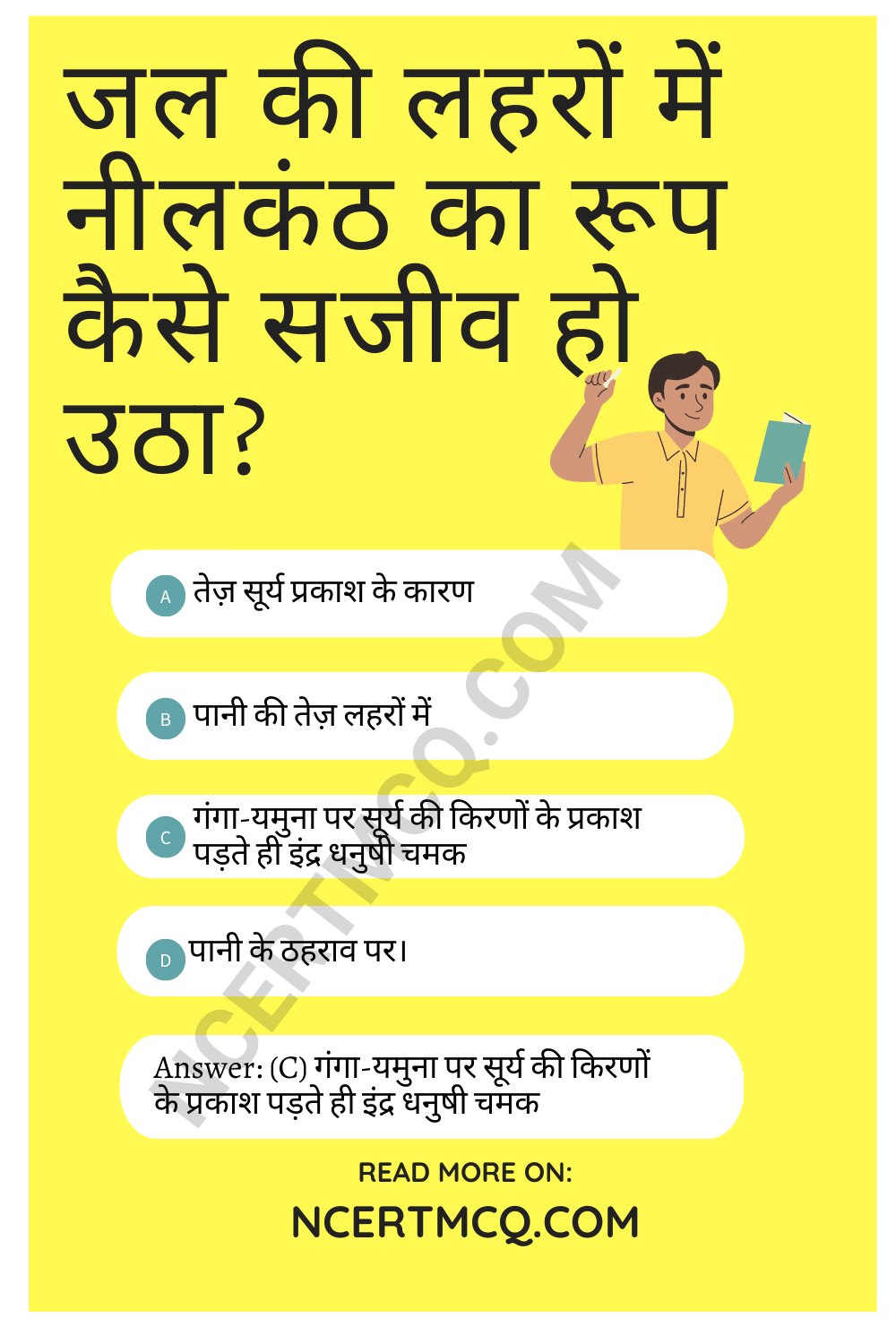
(5)
मेरे निरीक्षण के साथ-साथ बड़े मियाँ की भाषा-मेल चली जा रही थी, “ईमान कसम, गुरु जी-चिड़ीमार ने मुझसे इस मोर के जोड़े के नकद तीस रुपये लिए हैं। बारहा कहा, भई ज़रा सोच तो, अभी इनमें मोर की कोई खासियत भी है कि तू इतनी बड़ी कीमत ही माँगने चला! पर वह पूँजी क्यों सुनने लगा। आपका खयाल करके अछता-पछताकर देना ही पड़ा। अब आप जो मुनासिब समझें।” अस्तु, तीस चिड़ीमार के नाम के और पाँच बड़े मियाँ के ईनाम के देकर जब मैंने वह छोटा पिंजड़ा कार में रखा तब मानो वह जाली के चौखटे का चित्र जीवित हो गया। दोनों पक्षी-शावकों के छटपटाने से लगता था मानो पिंजड़ा ही सजीव और उड़ने योग्य हो गया है।
Question 1.
गद्यांश के पाठ और लेखिका का नाम लिखिए।
Answer
Answer: पाठ का नाम-नीलकंठ, लेखिका का नाम-महादेवी वर्मा।
Question 2.
लेखिका किसका निरीक्षण कर रही थी?
Answer
Answer: लेखिका तार में रखे दो मोर के शावकों का निरीक्षण कर रही थी।
Question 3.
लेखिका ने बड़े मियाँ को भाषण मेल क्यों कहा?
Answer
Answer: लेखिका ने बड़े मियाँ को भाषण मेल इसलिए कहा क्योंकि वे बोलते बहुत अधिक थे। उनकी आदत थी कि वे बीच में रुकते नहीं थे।
Question 4.
तीस चिड़ीमार के नाम के और पाँच बड़े मियाँ ईमान के लेखिका का क्या अभिप्राय है?
Answer
Answer: बड़े मियाँ ने ईमान की कसम खाकर कहा था कि उन्होंने चिड़ीमार से तीस रुपए में मोर के दोनों बच्चे खरीदे हैं, तब लेखिका ने तीस रुपए चिड़ीमार के नाम के और पाँच बड़े मियाँ के ईमान के दिए, क्योंकि जब बड़े मियाँ ने ईमान की कसम ली थी, तो उनकी बात पर भरोसा करना ही था।
Question 5.
पक्षी शावक का अर्थ क्या है ?
Answer
Answer: पक्षी का बच्चा।
(6)
मोर के सिर की कलगी और सघन, ऊँची तथा चमकीली हो गई। चोंच अधिक बंकिम और पैनी हो गई, गोल आँखों में इंद्रनी की नीलाभ द्युति झलकने लगी। लंबी नील-हरित ग्रीवा की हर भंगिमा में धूपछाँही तरंगें उठने-गिरने लगीं। दक्षिण-वाम दोनों पंखों में सलेटी और सफ़ेद आलेखन स्पष्ट होने लगे। पूँछ लंबी हुई और उसके पंखों पर चंद्रिकाओं के इंद्रधनुषी रंग उददीप्त हो उठे। रंगरहित पैरों को गरवीली गति ने एक नई गरिमा से रंजित कर दिया। उसका गरदन ऊँची कर देखना, विशेष भंगिमा के साथ उसे नीची कर दाना चुगना, पानी पीना, ढेढ़ी कर शब्द सुनना आदि क्रियाओं में जो सुकुमारता और सौंदर्य था, उसका अनुभव देखकर ही किया जा सकता है। गति का चित्र नहीं आंका जा सकता।
Question 1.
मोर के सिर की कलगी कैसी थी?
Answer
Answer: मोर के सिर की कलगी सघन, ऊँची तथा चमकीली थी।
Question 2.
मोर की चोंच कैसी थी?
Answer
Answer: मोर की चोंच बंकिम और पैनी थी।
Question 3.
मोर की ग्रीवा की क्या विशेषता थी?
Answer
Answer: मोर की ग्रीवा नील-हरित ग्रीवा का इंद्रधनुषी दिखना उसकी प्रमुख विशेषता थी।
Question 4.
रंग-रहित पैरों को गरवीली गति ने एक नई गरिमा से रंजित कर दिया,-इस पंक्ति का अभिप्राय क्या है ?
Answer
Answer: रंग-रहित पैरों को गरवीली गति ने एक नई गरिमा से रंजित कर दिया, इस पंक्ति का अभिप्राय है कि नीलकंठ की गरवीली चाल उसके रंग रहित पैरों को नया रूप प्रदान करती है।
Question 5.
मोर की कौन-कौन-सी भंगिमाएँ मोहक थीं?
Answer
Answer: मोर की प्रमुख भंगिमाएँ थीं-गर्दन ऊँची करके देखना, नीची कर चुगना, पानी पीना व टेढ़ी कर शब्द सुनना।
(7)
खरगोश के छोटे बच्चों को वह चोंच से उनके कान पकड़कर ऊपर उठा लेता था और जब तक वे आर्तक्रंदन न करने लगते उन्हें अधर में लटकाए रखता। कभी-कभी उसकी पैनी चोंच से खरगोश के बच्चों का कर्णवेध संस्कार हो जाता था, पर वे फिर कभी उसे क्रोधित होने का अवसर न देते । दंडविधान के समान ही उन जीव-जंतुओं के प्रति उसका प्रेम भी असाधारण था। प्रायः वह मिट्टी में पंख फैलाकर बैठ जाता और वे सब उसकी लंबी पूँछ और सघन पंखों में छुआ-छुऔअल-सा खेलते रहते थे।
Question 1.
नीलकंठ खरगोश के बच्चों के कान चोंच से पकड़कर दंडित क्यों करता था?
Answer
Answer: नीलकंठ खरगोश के बच्चों के कान चोंच से पकड़कर इसलिए दंडित करता था कि जब वे उनकी बात नहीं मानते थे।
Question 2.
नीलकंठ के द्वारा दिए गए दंड का क्या परिणाम होता था?
Answer
Answer: नीलकंठ की पैनी चोंच से कभी-कभी खरगोश के बच्चों के कान छिद जाते थे, लेकिन फिर भी दुबारा वे उसे क्रोधित होने का मौका नहीं देते थे।
Question 3.
जालीघर के अन्य जीव-जंतुओं के प्रति नीलकंठ का क्या व्यवहार था?
Answer
Answer: जालीघर के अन्य जीव-जंतुओं की ज़रा-सी गड़बड़ी पर नीलकंठ किसी को दंडित करने से नहीं चूकता था, लेकिन उनके प्रति अपने हृदय में अगाध प्रेम भी रखता था।
Question 4.
नीलकंठ जीवों के प्रति प्रेमभाव कैसे व्यक्त करता था?
Answer
Answer: नीलकंठ जीवों के प्रति प्रेमभाव दर्शाने हेतु अपने पंख फैलाकर बैठ जाता, सभी लंबी पूछ व सघन पंखों में छूआ-छुऔअल खेलते रहते थे।
Question 5.
आर्तक्रंदन और पैनी का अर्थ लिखिए।
Answer
Answer:
आर्तक्रंदन-करुण आवाज़ में रोना-चिल्लाना।
पैनी-तेज़, तीक्ष्ण।
(8)
मयूर कलाप्रिय और वीर पक्षी है, हिंसक मात्र नहीं। इसी से उसे बाज़, चील आदि की श्रेणी में नहीं रखा जा सकता, जिनका जीवन ही क्रूर कर्म है। नीलकंठ में उसकी जातिगत विशेषताएँ तो थी ही, उनका मानवीकरण भी हो गया था। मेघों की साँवली छाया में अपने इंद्रधनुष के गुच्छे जैसे पंखों को मंडलाकार बनाकर जब वह नाचता था, तब उस नृत्य में एक सहजात लय-ताल रहता था। आगे-पीछे, दाहिनेबाएँ क्रम से घूमकर वह किसी अलक्ष्य सम पर ठहर-ठहर जाता था।
Question 1.
मोर, चील, और बाज़ में एकमात्र समानता क्या है ?
Answer
Answer: मोर, चील और बाज़ में एकमात्र समानता होती है कि ये हिंसक होते हैं।
Question 2.
मोर कैसा पक्षी है?
Answer
Answer: मोर एक कला प्रेमी पक्षी होता है।
Question 3.
बाज़ और चील कैसा पक्षी है?
Answer
Answer: बाज़ और चील हिंसक एवं क्रूर पक्षी है।
Question 4.
नीलकंठ को क्या हो गया था?
Answer
Answer: नीलकंठ में उसकी जातिगत विशेषताएँ तो थी ही, इसके साथ-साथ उसका मानवीकरण भी हो गया था।
Question 5.
नीलकंठ पंखों को मंडलाकार बनाकर कब नाचता था?
Answer
Answer: मेघों की साँवली छाया में नीलकंठ पंखों को मंडलाकार बनाकर नाचता ।
Question 6.
नीलकंठ जब नाचता था, उस समय का दृश्य कैसा होता था?
Answer
Answer: नीलकंठ पंखों को मंडलाकार बनाकर जब अपने इंद्रधनुषी पंखों को फैलाकर नाचता था तब इसका नृत्य देखते बनता था। वह आगे-पीछे, दाएँ-बाएँ घूम-घूमकर नाचता तथा कभी-कभी ठहर जाता था।
(9)
उँगलियाँ वैसी ही टेढ़ी-मेढ़ी रहीं, परंतु वह दूंठ जैसे पंजों पर डगमगाती हुई चलने लगी। तब उसे जालीघर में पहुँचाया गया और नाम रखा गया-कुब्जा। नाम के अनुरूप वह स्वभाव से भी कुब्जा ही प्रमाणित हुई। अब तक नीलकंठ और राधा साथ रहते थे। अब कुब्जा उन्हें साथ देखते ही मारने दौड़ती। चोंच से मार-मारकर उसने राधा की कलगी नोच डाली, पंख नोच डाले। कठिनाई यह थी कि नीलकंठ उससे दूर भागता था और वह उसके साथ रहना चाहती थी। न किसी जीव-जंतु से उसकी मित्रता थी, न वह किसी को नीलकंठ के समीप आने देना चाहती थी। उस बीच राधा ने दो अंडे दिए, जिनको वह पंखों में छिपाए बैठी रहती थी। पता चलते ही कुब्जा ने चोंच मार-मारकर राधा को ढकेल दिया और फिर अंडे-फोड़कर दूंठ जैसे पैरों से सब ओर छितरा दिए।
Question 1.
किसकी उँगलियाँ टेढ़ी-मेढ़ी थी?
Answer
Answer: अँगुलियाँ वैसी ही टेढ़ी-मेढ़ी कुब्जा नाम की एक मोरनी की थी।
Question 2.
कुब्जा कौन थी? उसका स्वभाव कैसा था?
Answer
Answer: कुब्जा एक मोरनी थी, जिसके टाँग टूटे हुए थे तथा लेखिका ने सात रुपये में बड़े मियाँ चिड़ियावाले से खरीदा था। पैरों की अँगुलियाँ टूटी होने के कारण उसका नाम कुब्जा रखा गया था। जालीघर के किसी जानवर से उसकी नहीं बनती थी।
Question 3.
कुब्जा ने नीलकंठ का स्नेह पाने के लिए क्या प्रयास किया?
Answer
Answer: कुब्जा ने नीलकंठ से स्नेह पाने के लिए चोंच मार-मारकर उसकी कलगी और पंख नोच डाले।
Question 4.
राधा को नीलकंठ से दूर करने के लिए कुब्जा ने क्या किया?
Answer
Answer: राधा से नीलकंठ को दूर करने के लिए कुब्जा ने राधा के दोनों अंडों को पैर से तोड़ दिया। उसकी कलगी और पंख नोच डाले।
Question 5.
‘कठिन’ और ‘समीप’ शब्द का भाववाचक संज्ञा रूप लिखिए।
Answer
Answer: कठिन-कठिनाई, समीप-समीप्य।
We hope the given NCERT MCQ Questions for Class 7 Hindi Vasant Chapter 15 नीलकंठ with Answers Pdf free download will help you. If you have any queries regarding CBSE Class 7 Hindi नीलकंठ MCQs Multiple Choice Questions with Answers, drop a comment below and we will get back to you soon.
